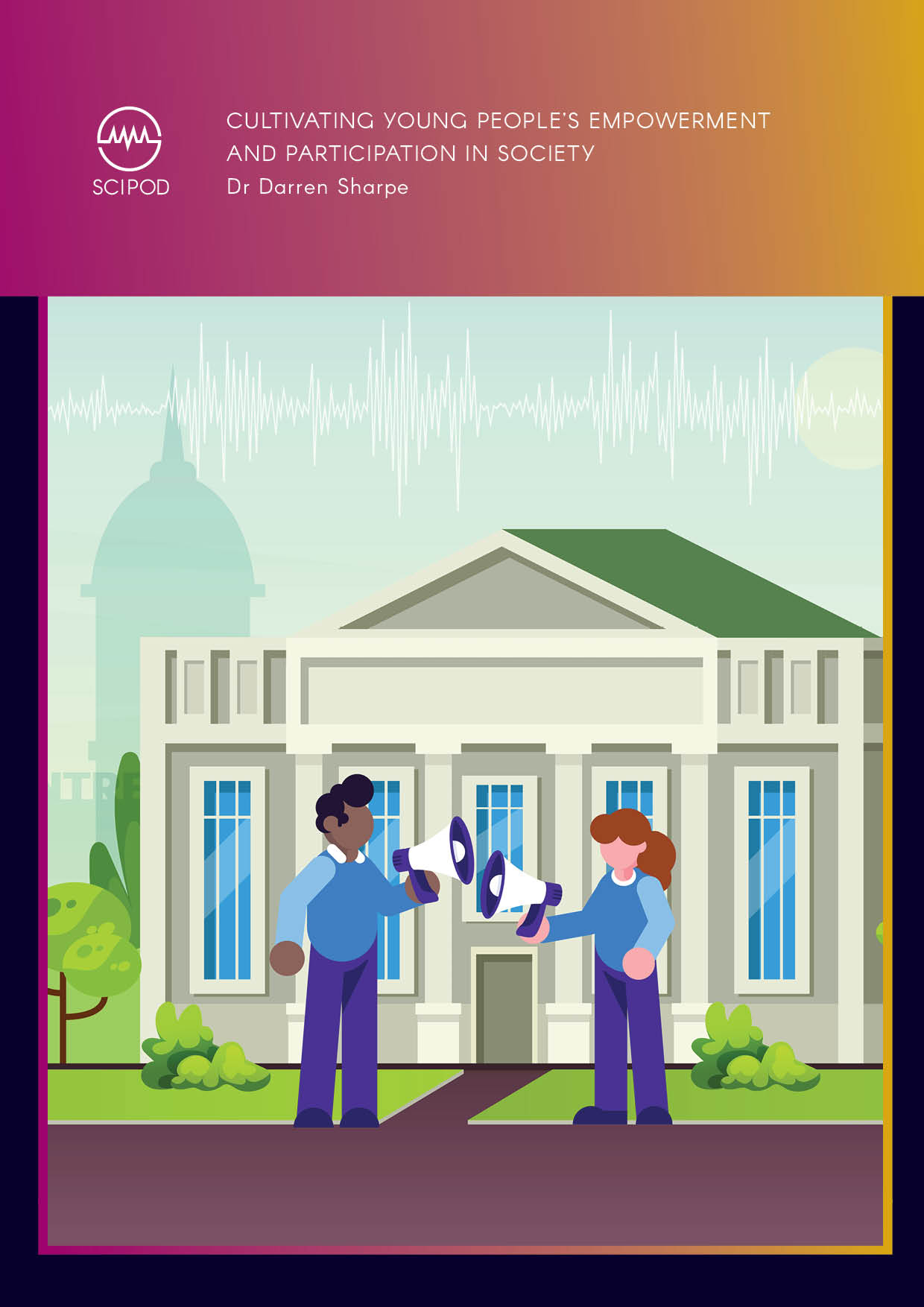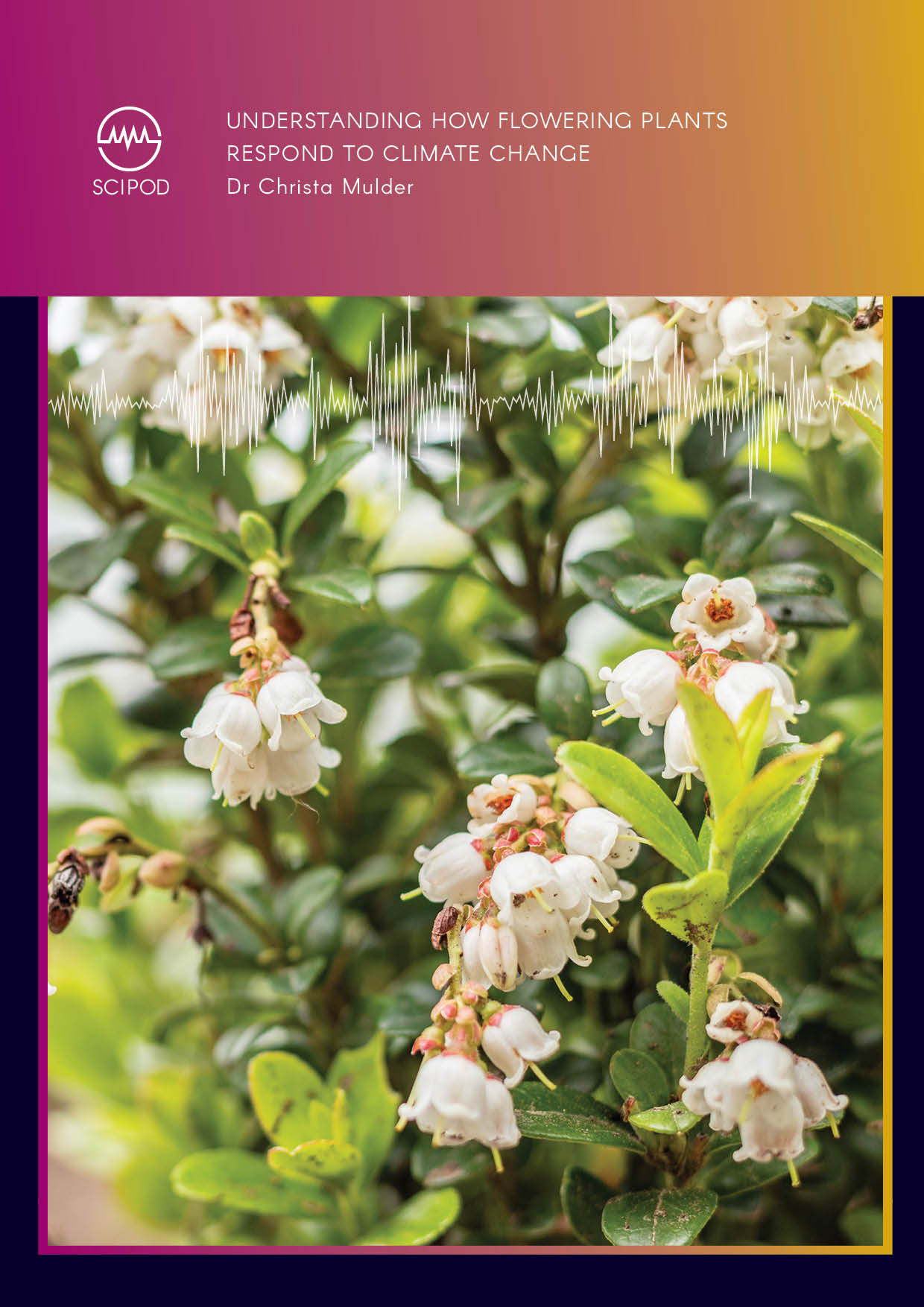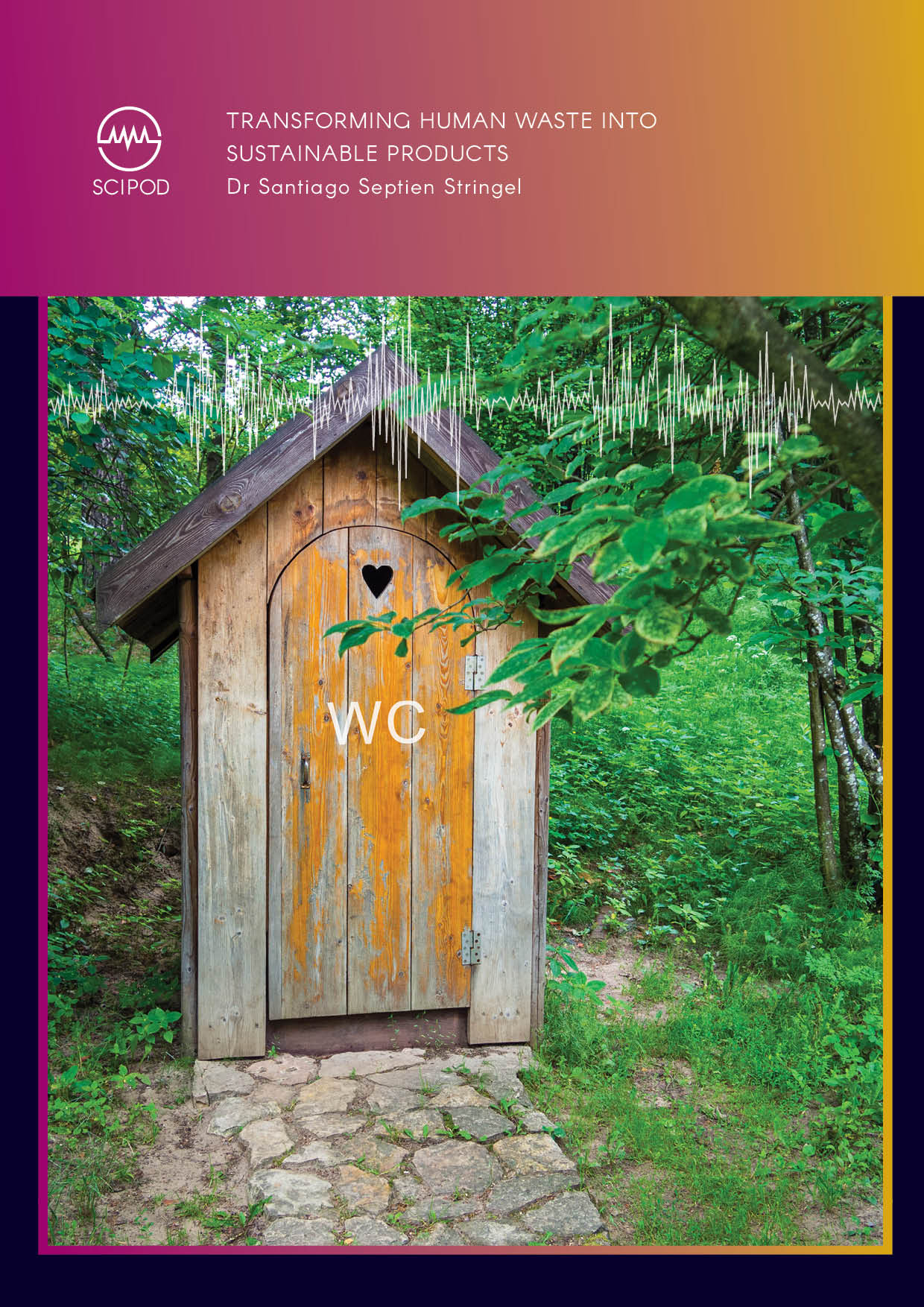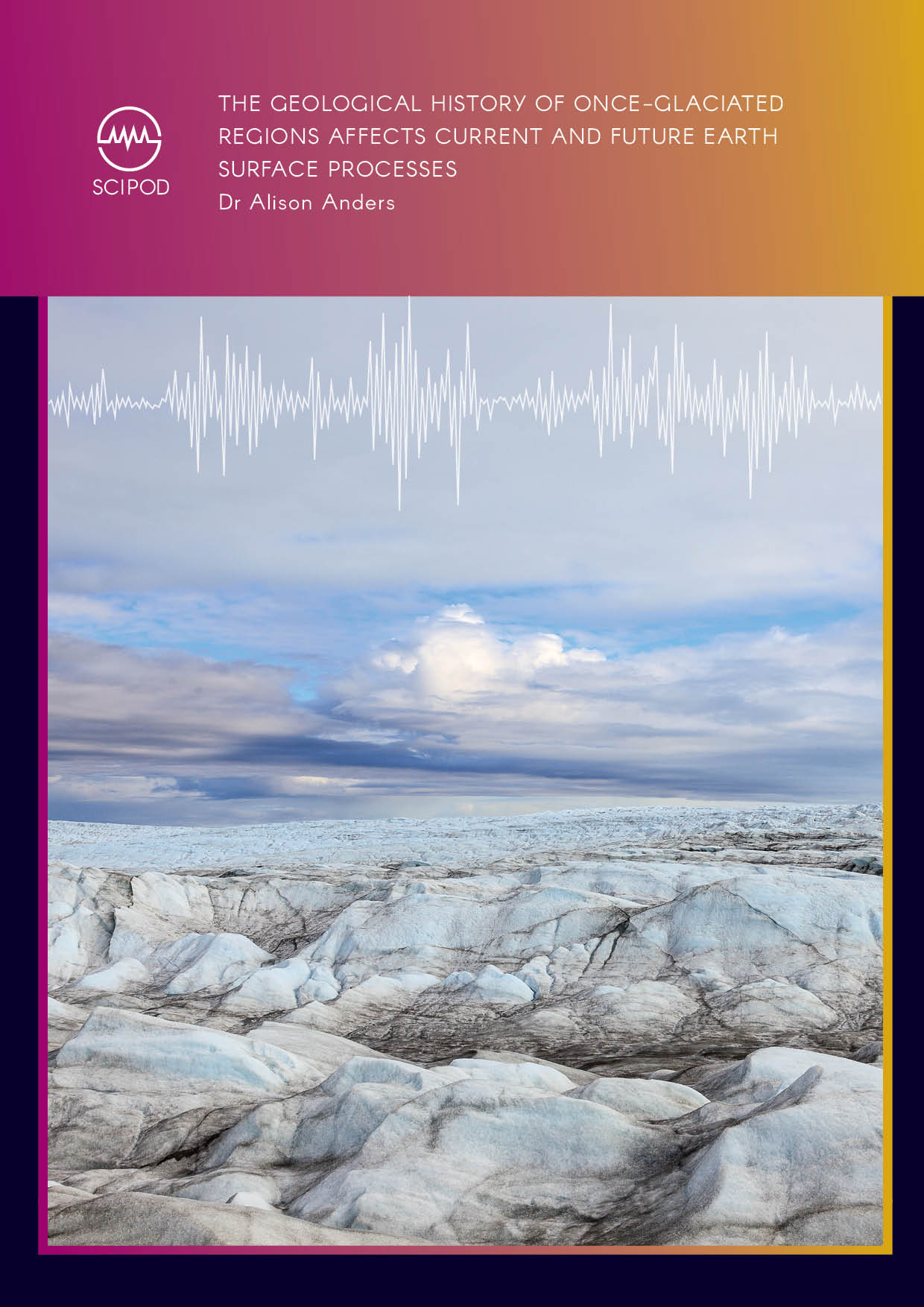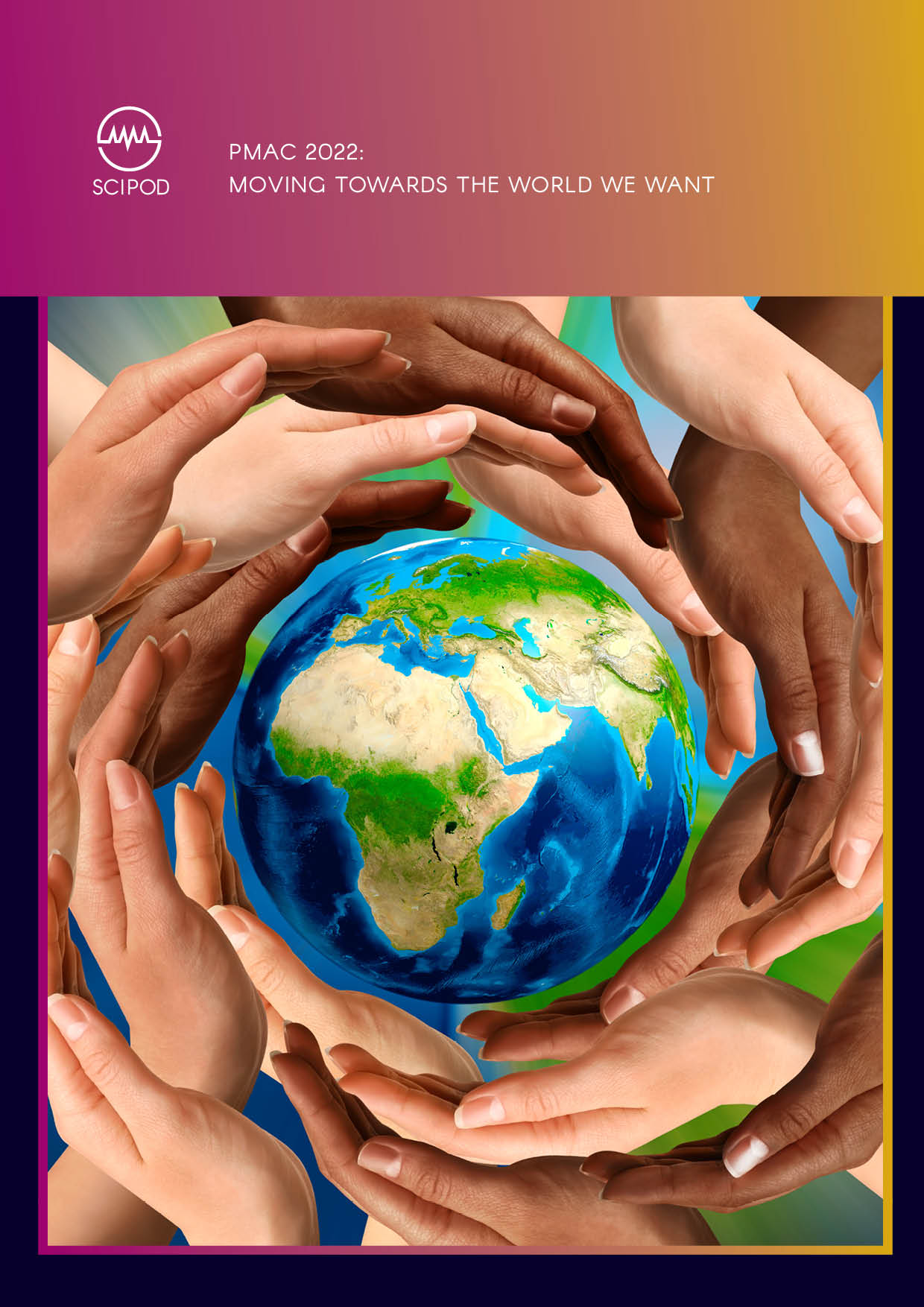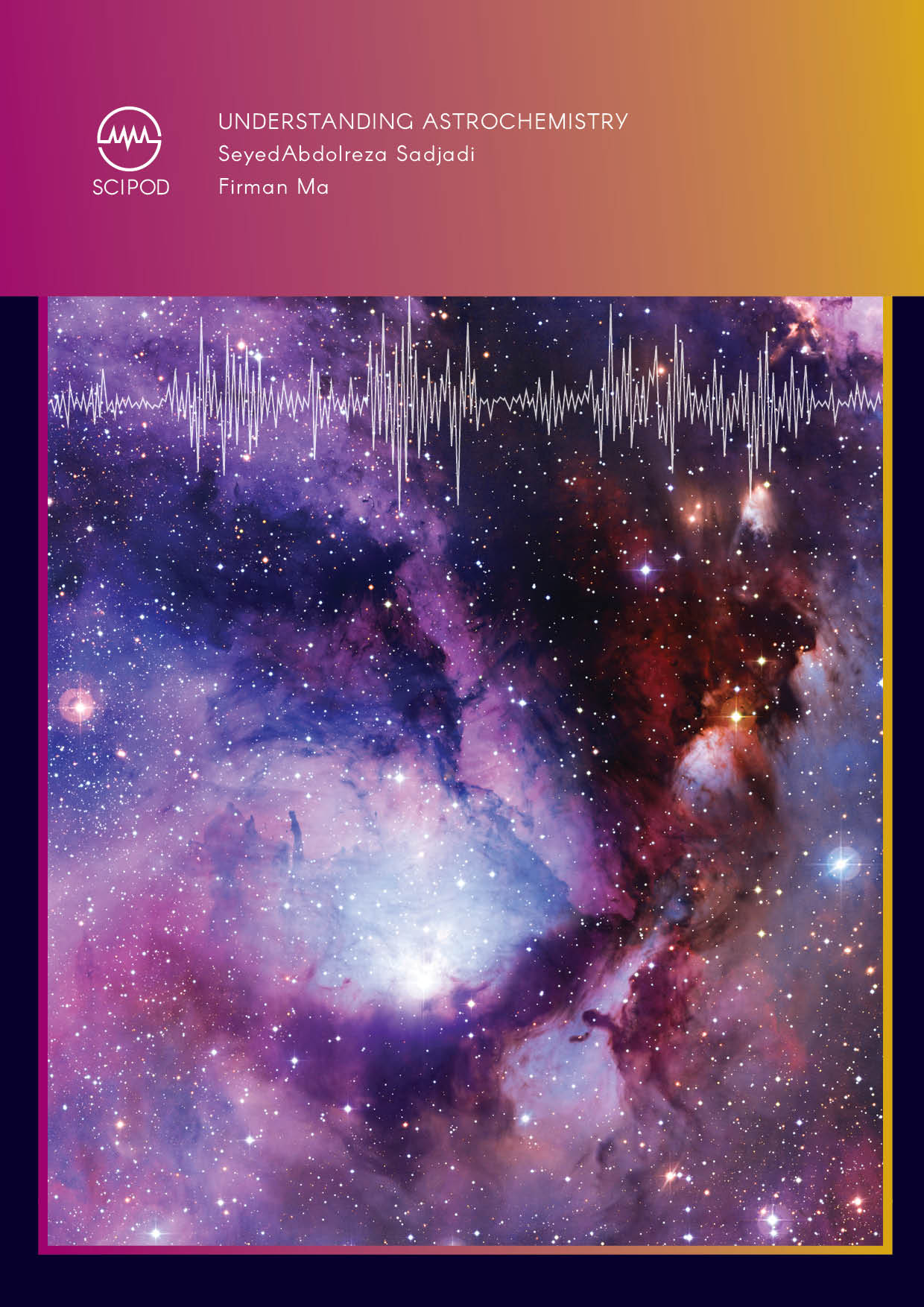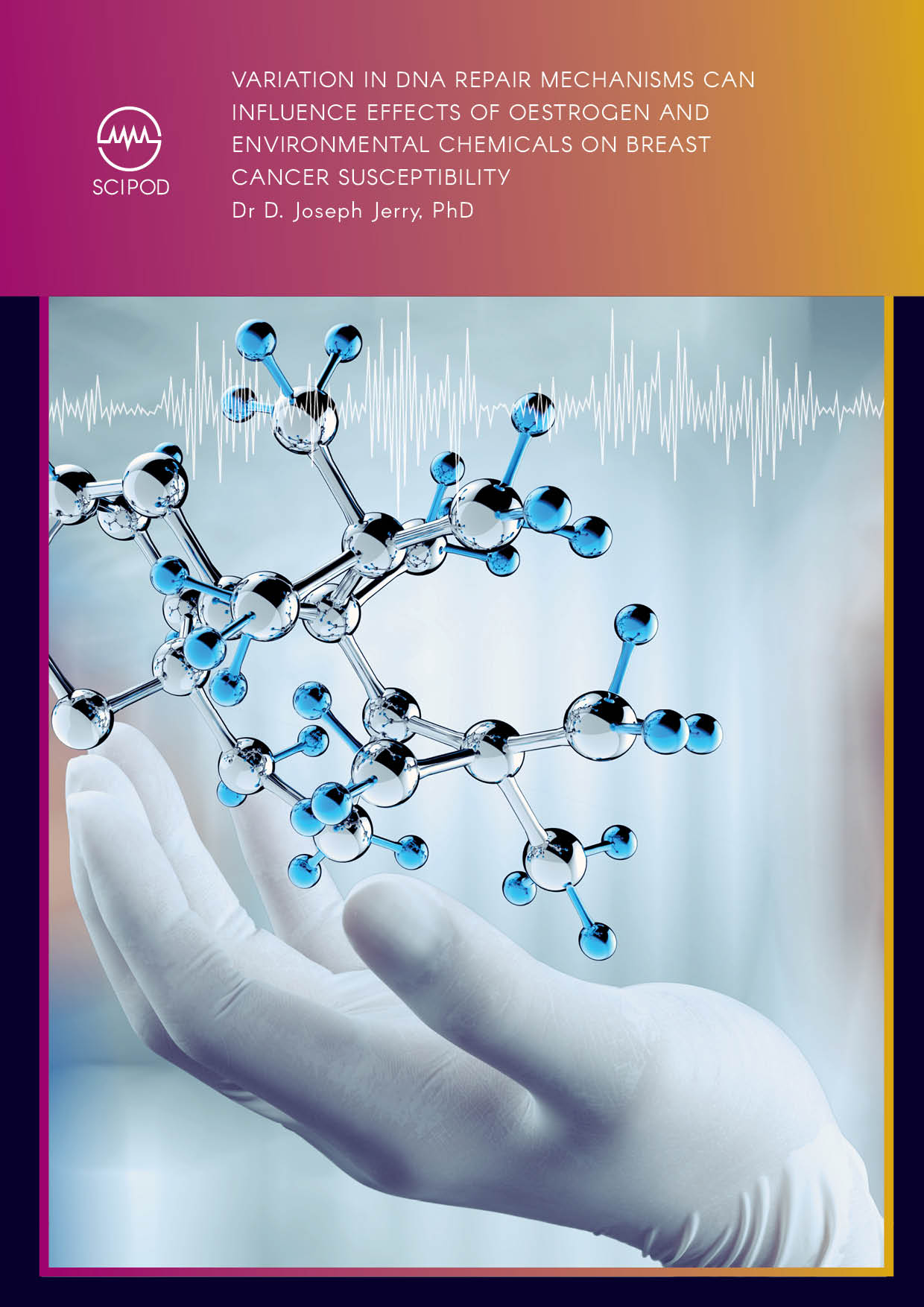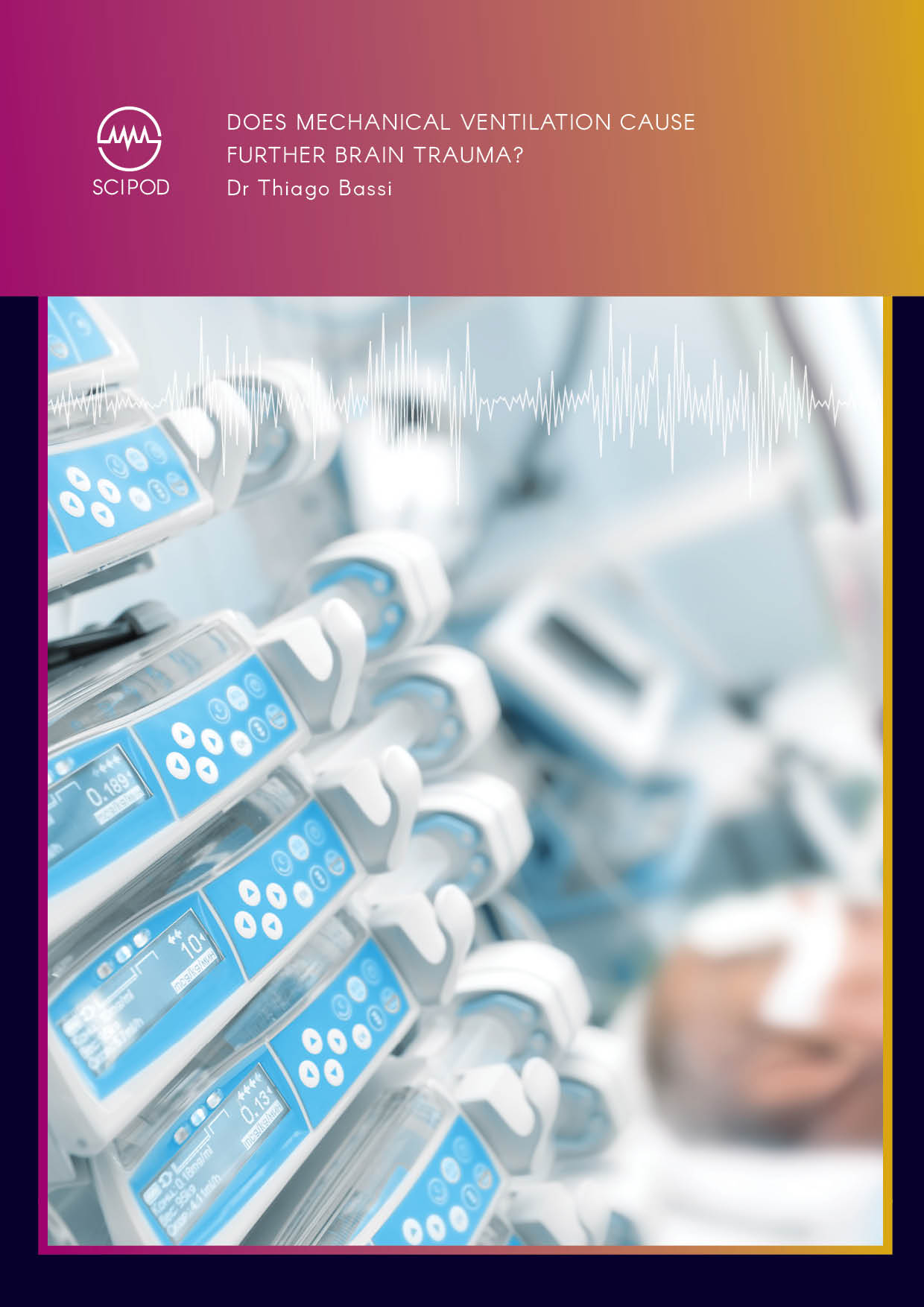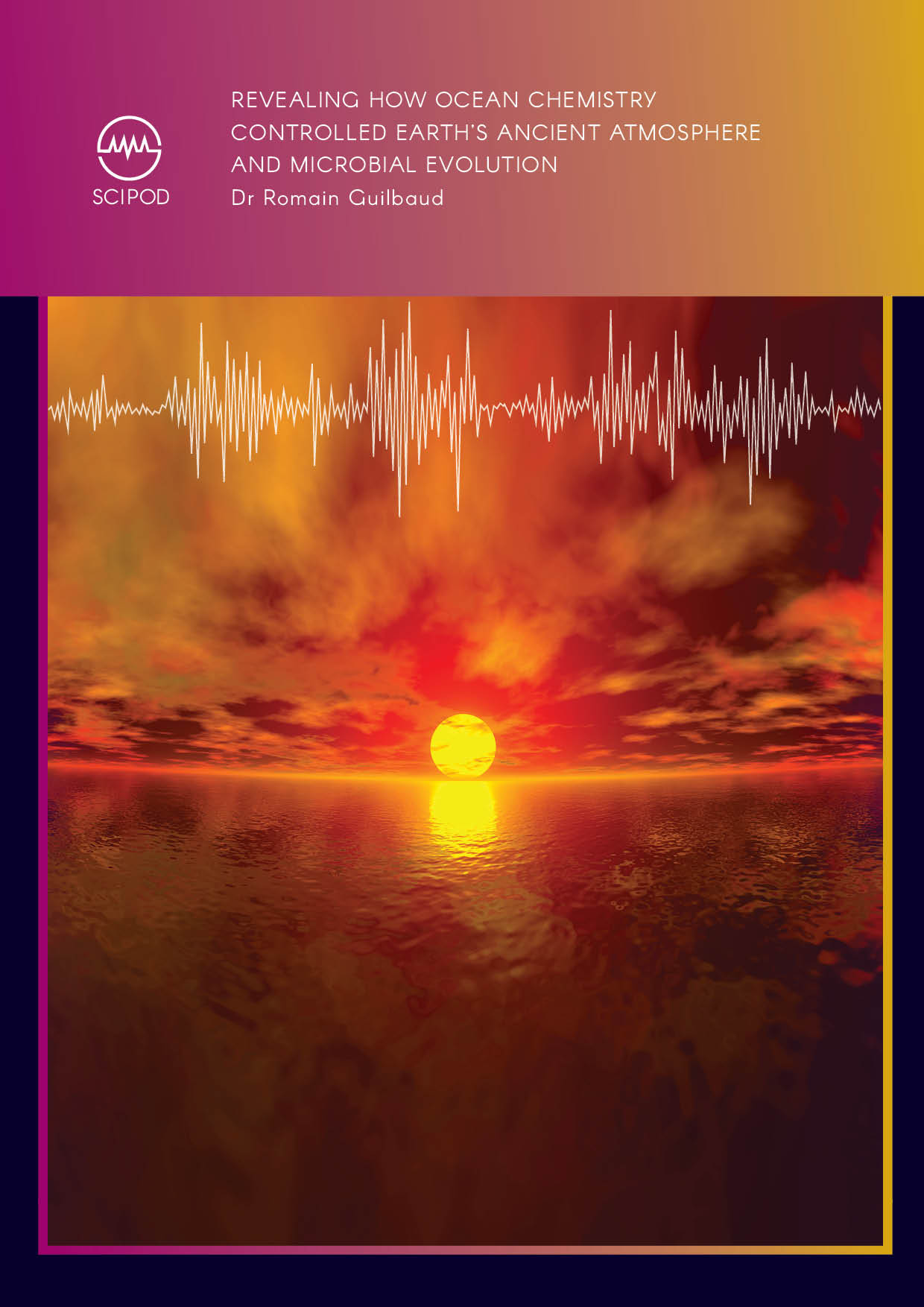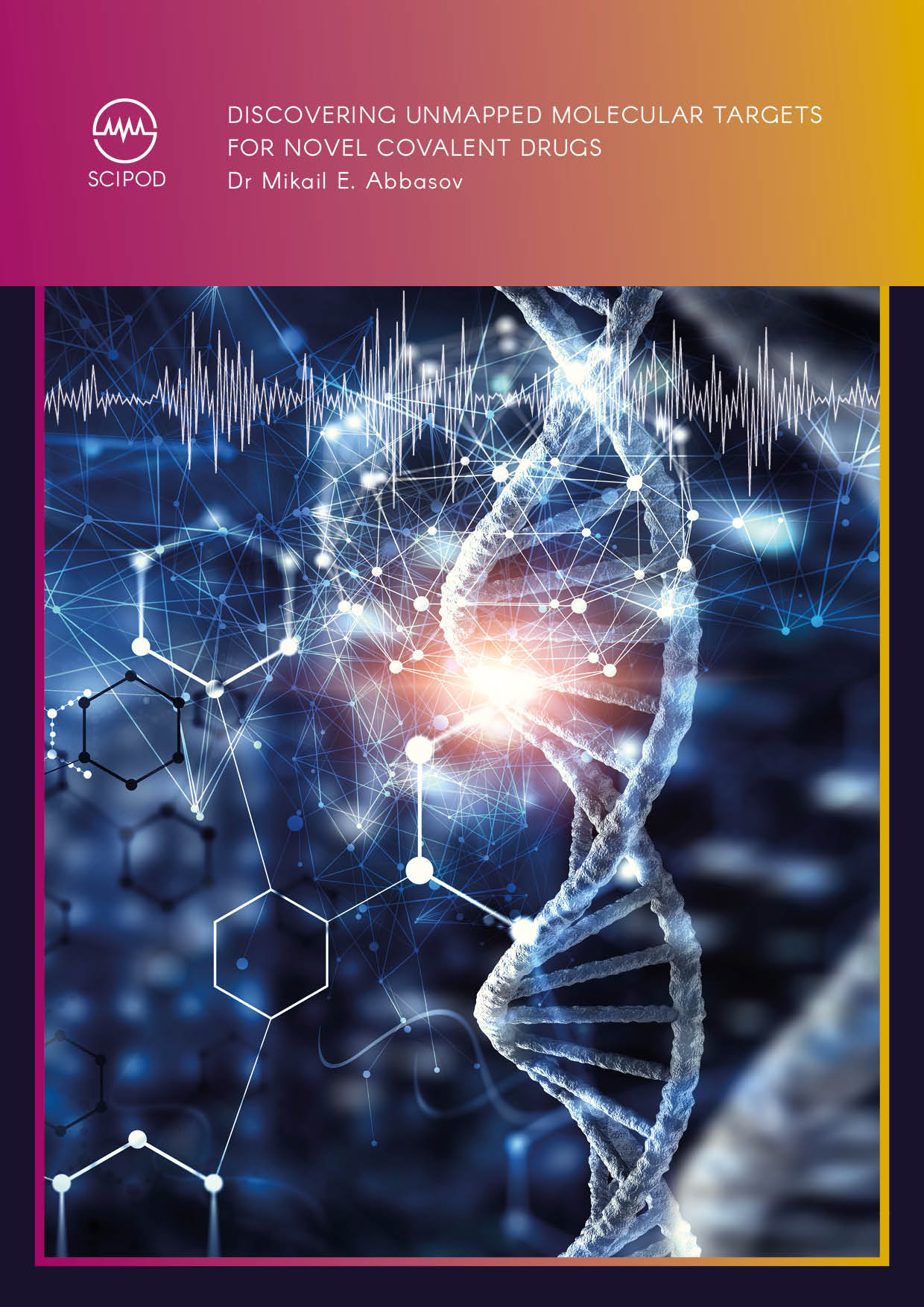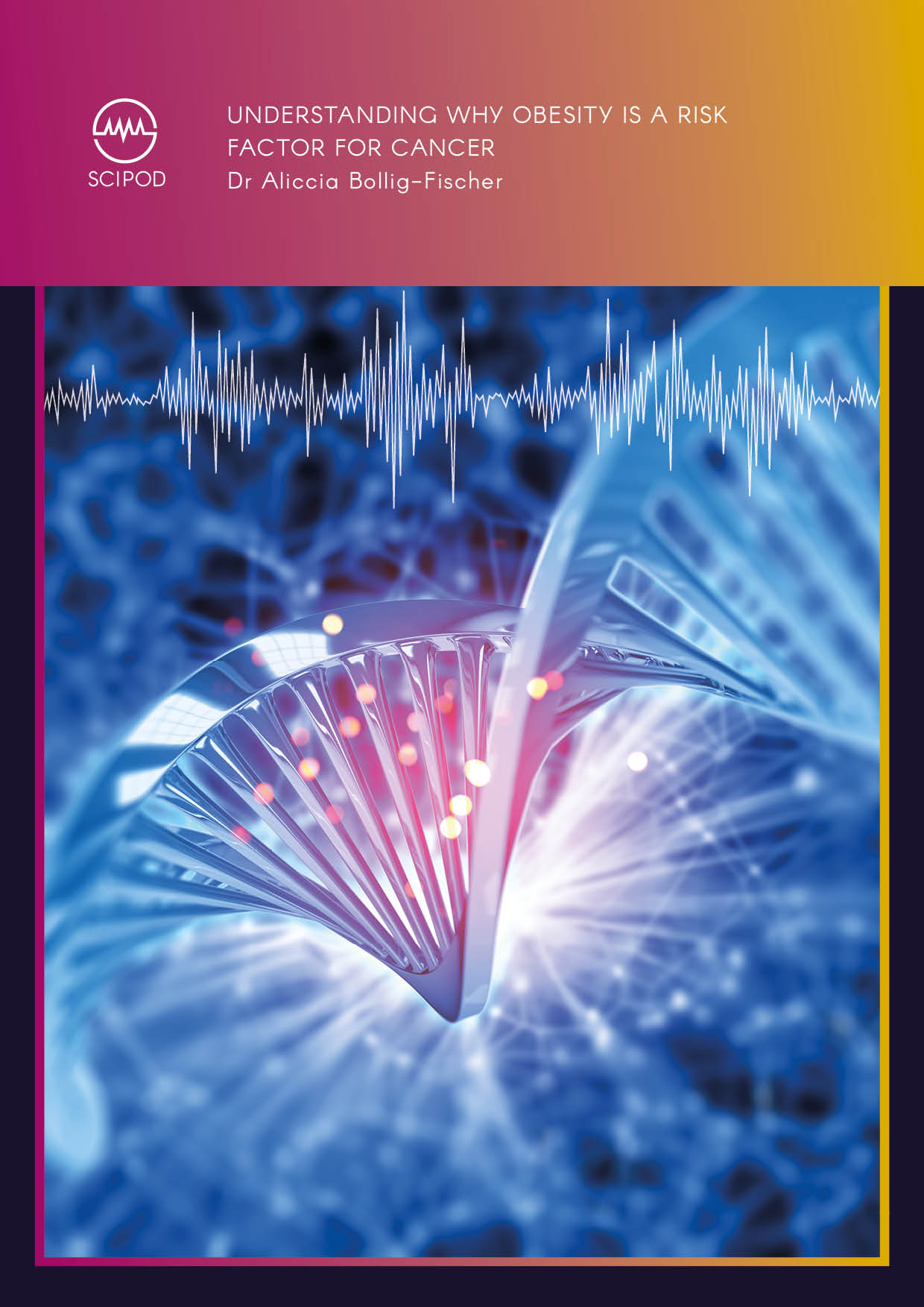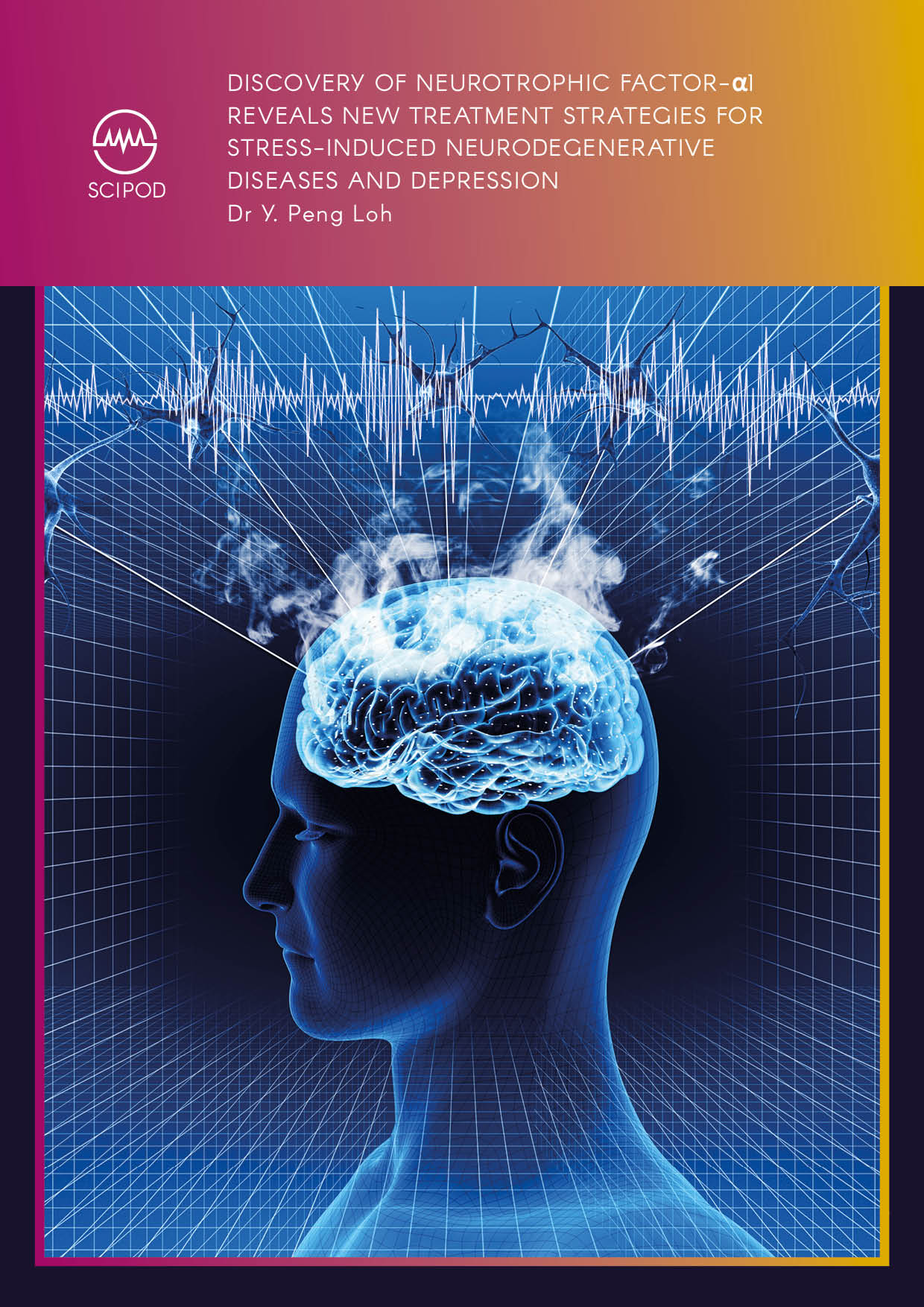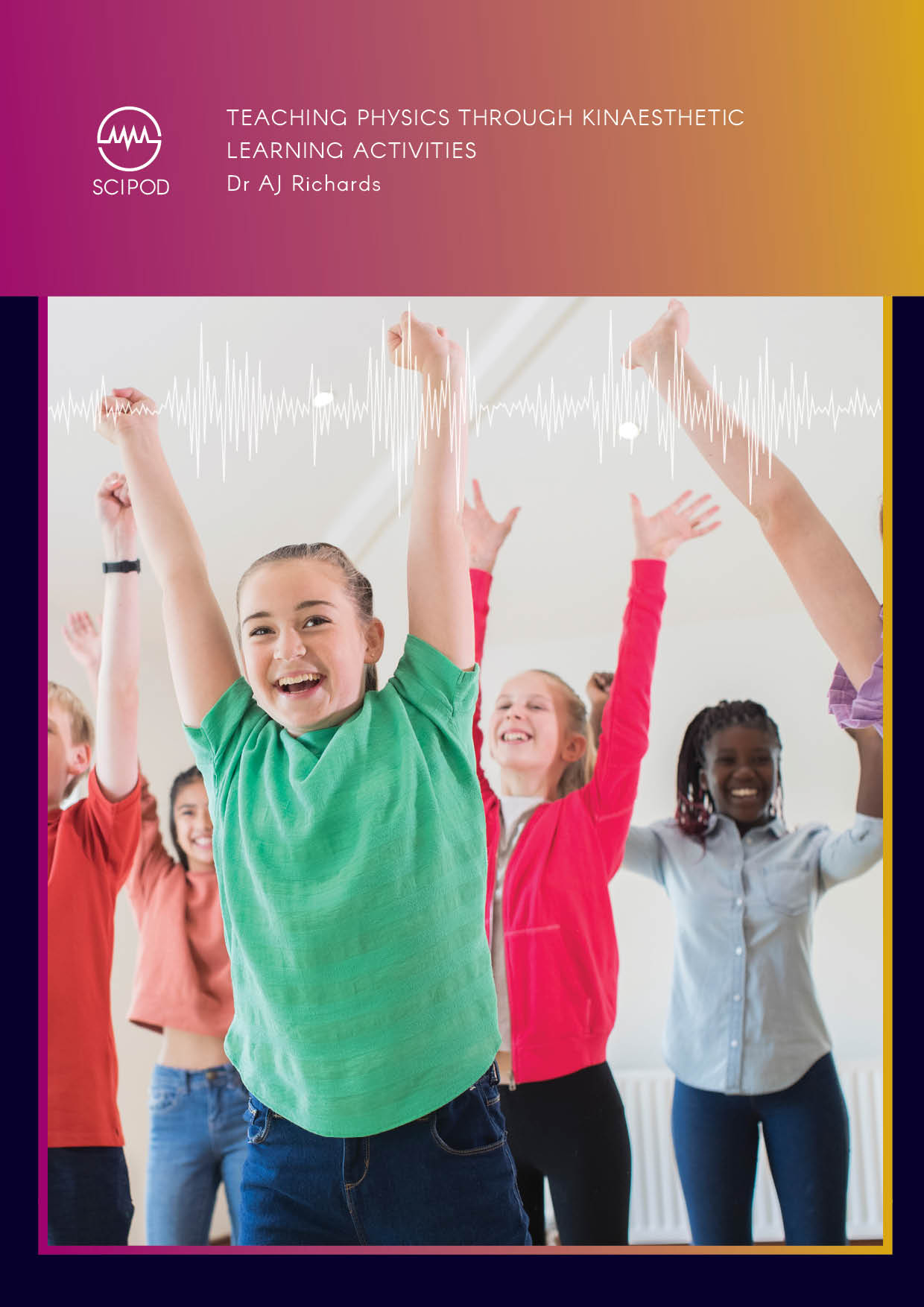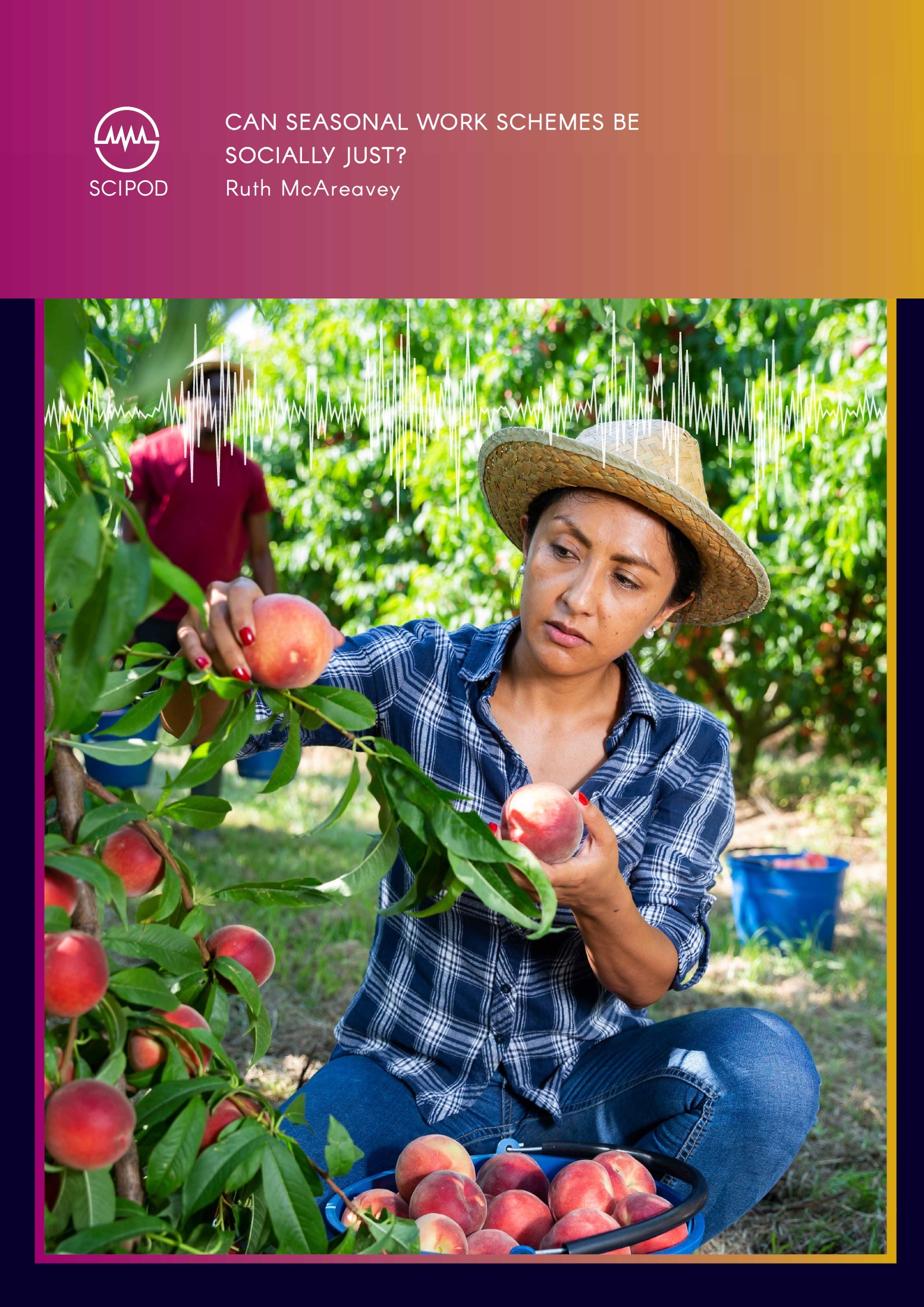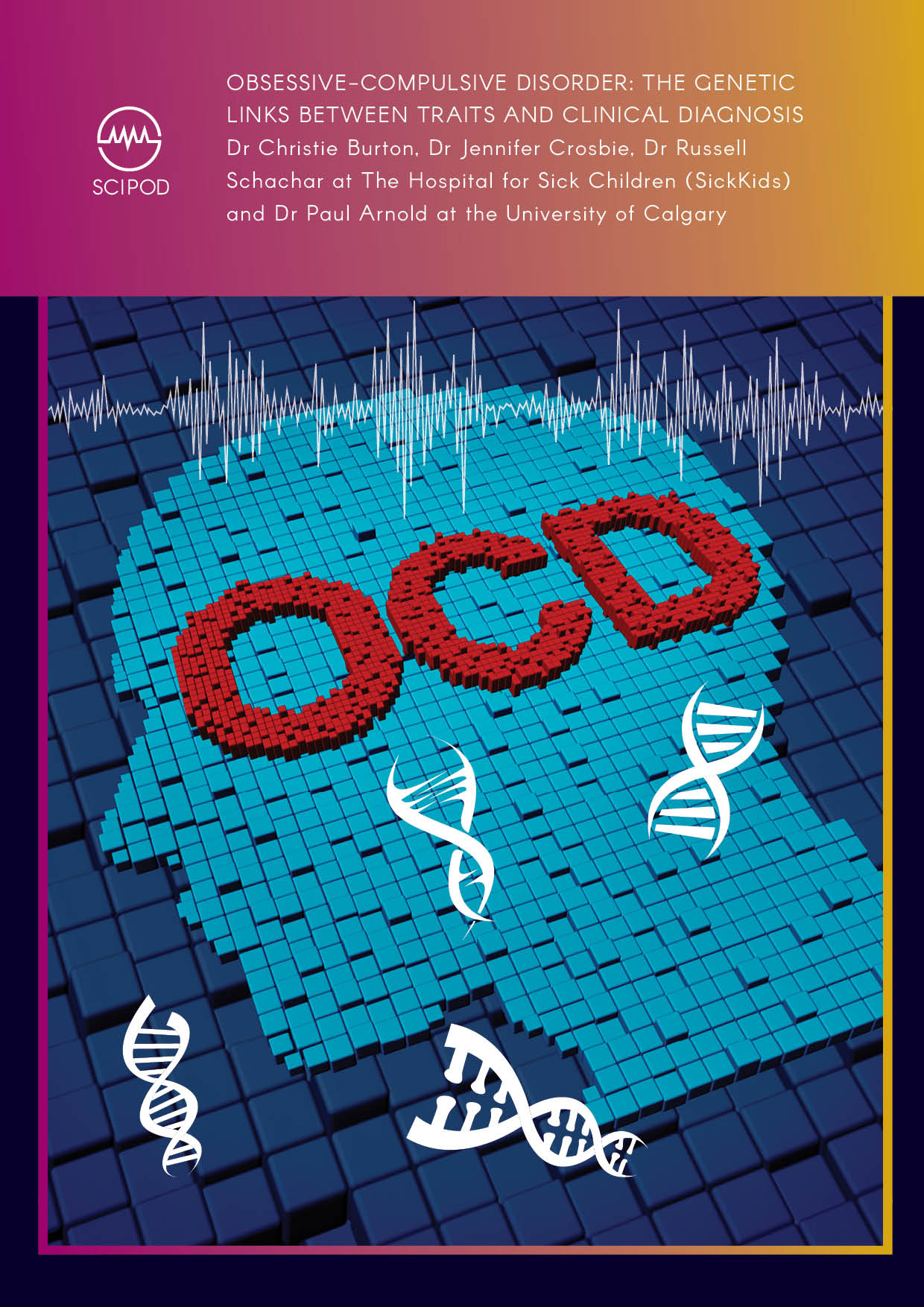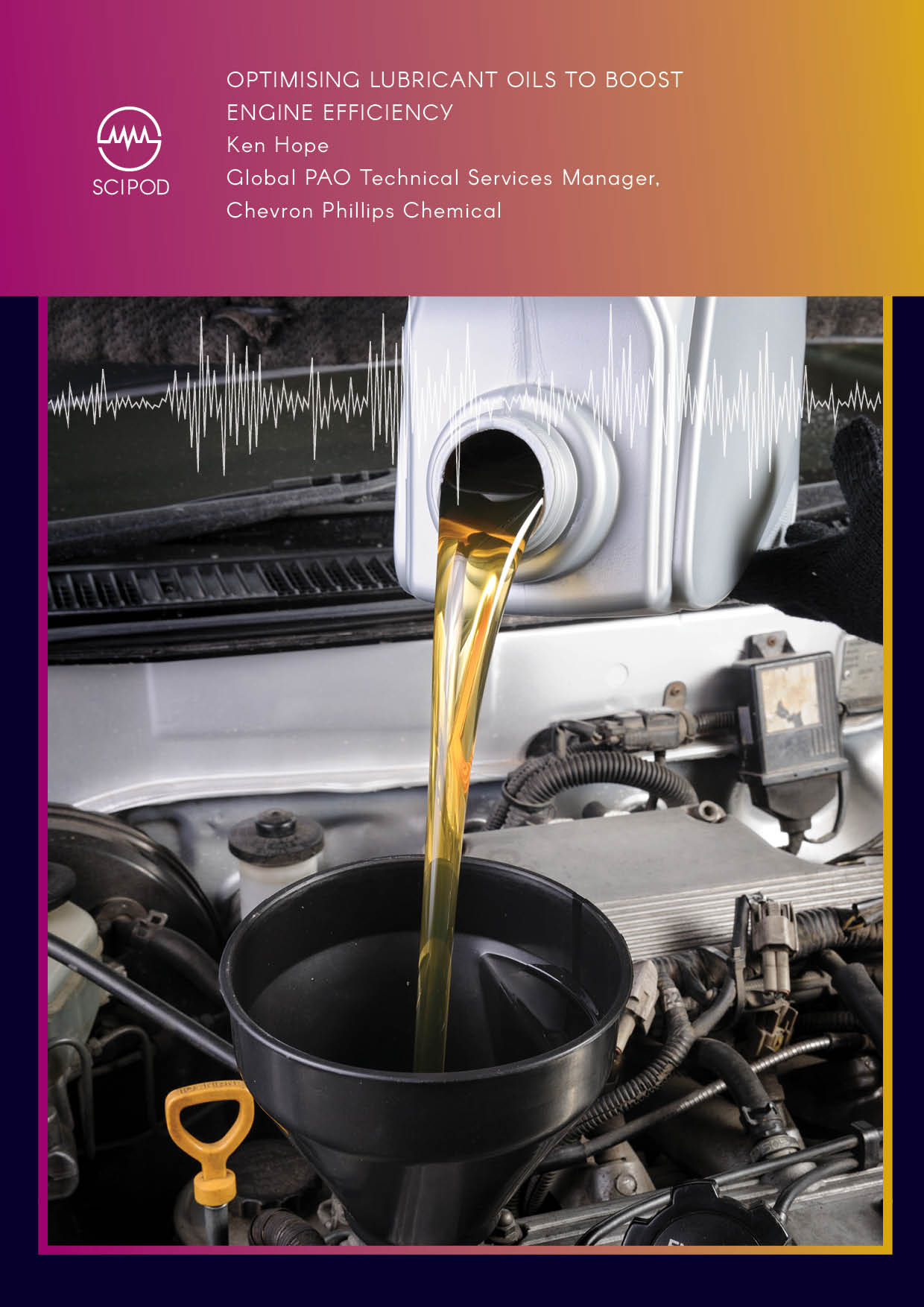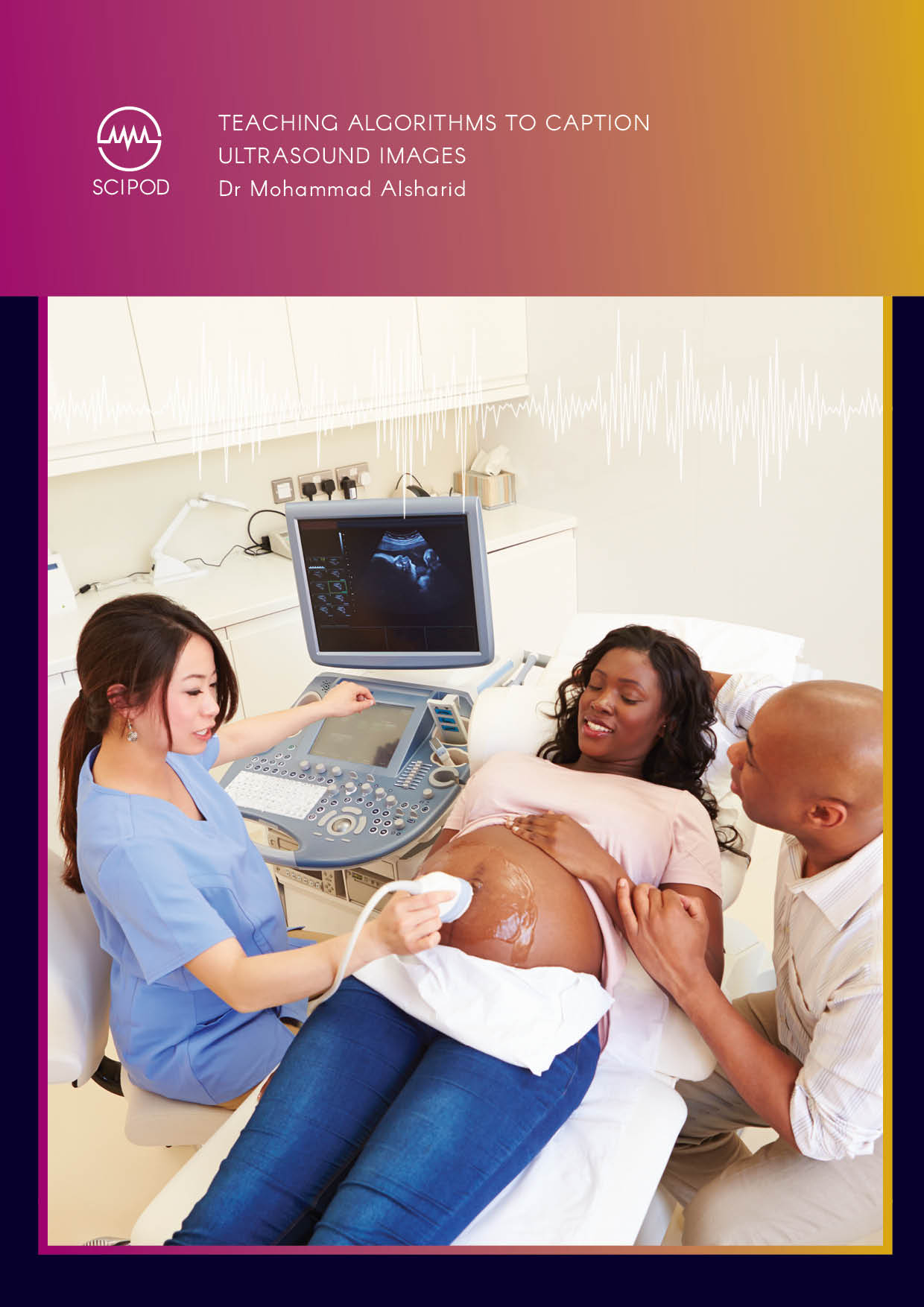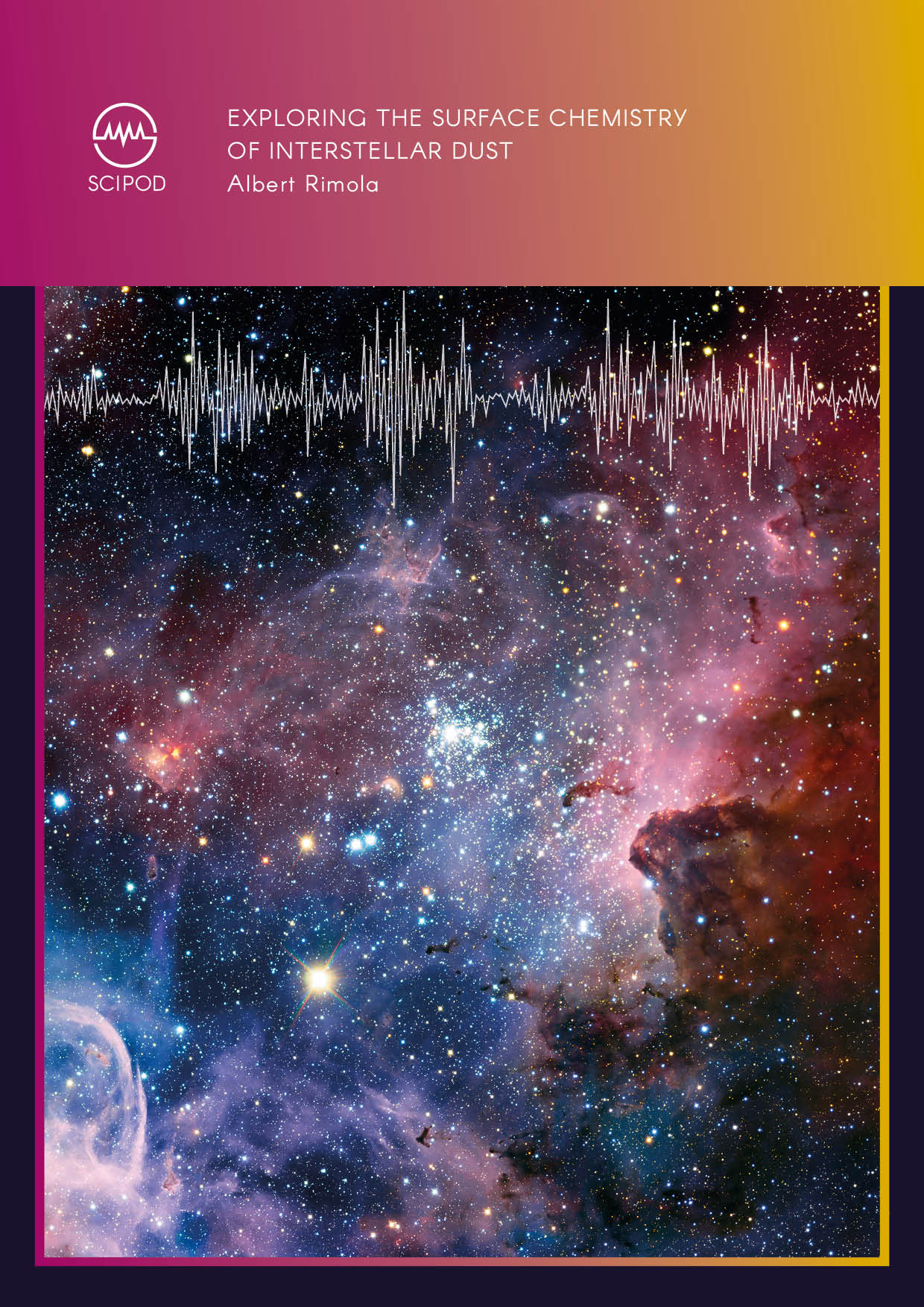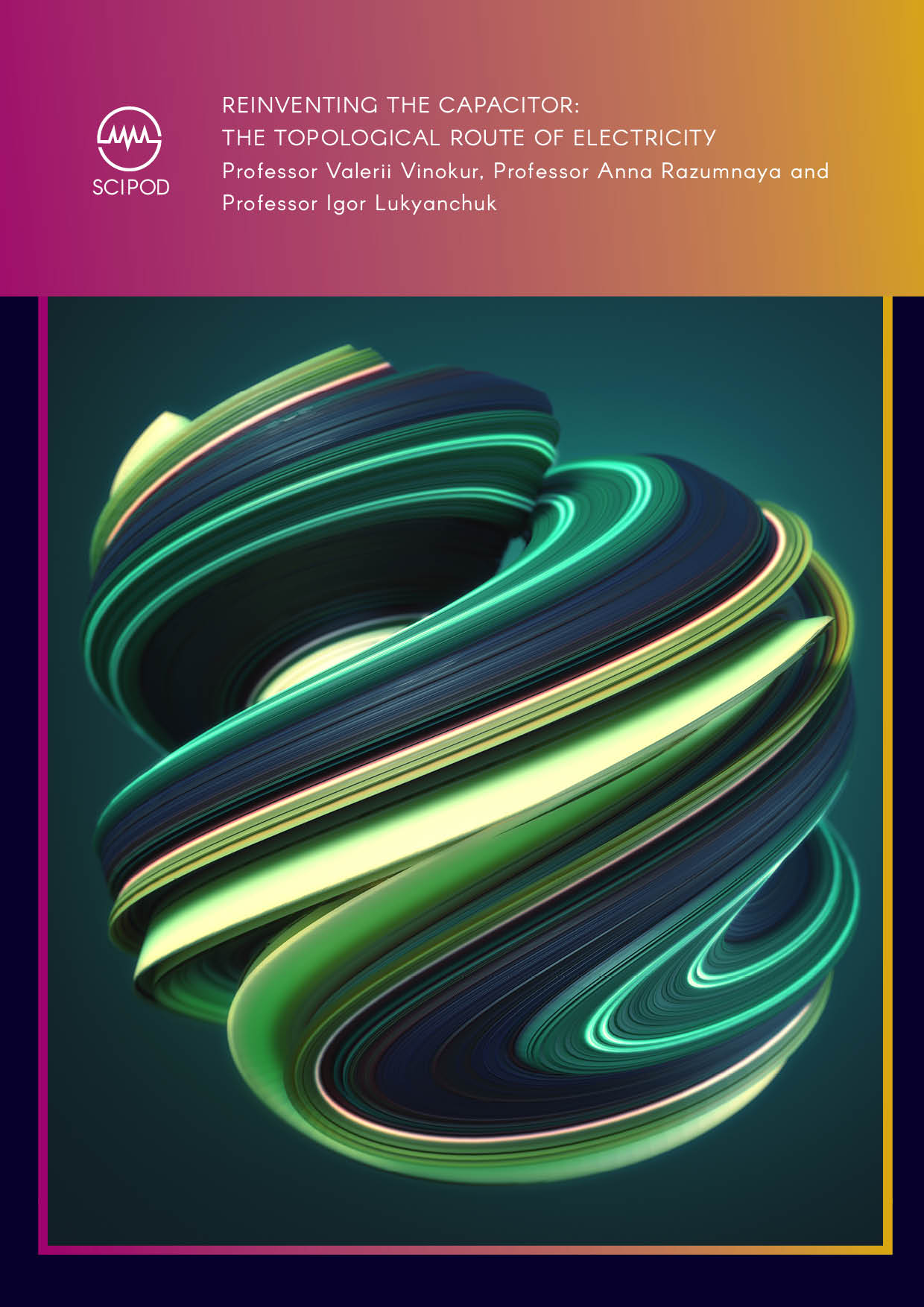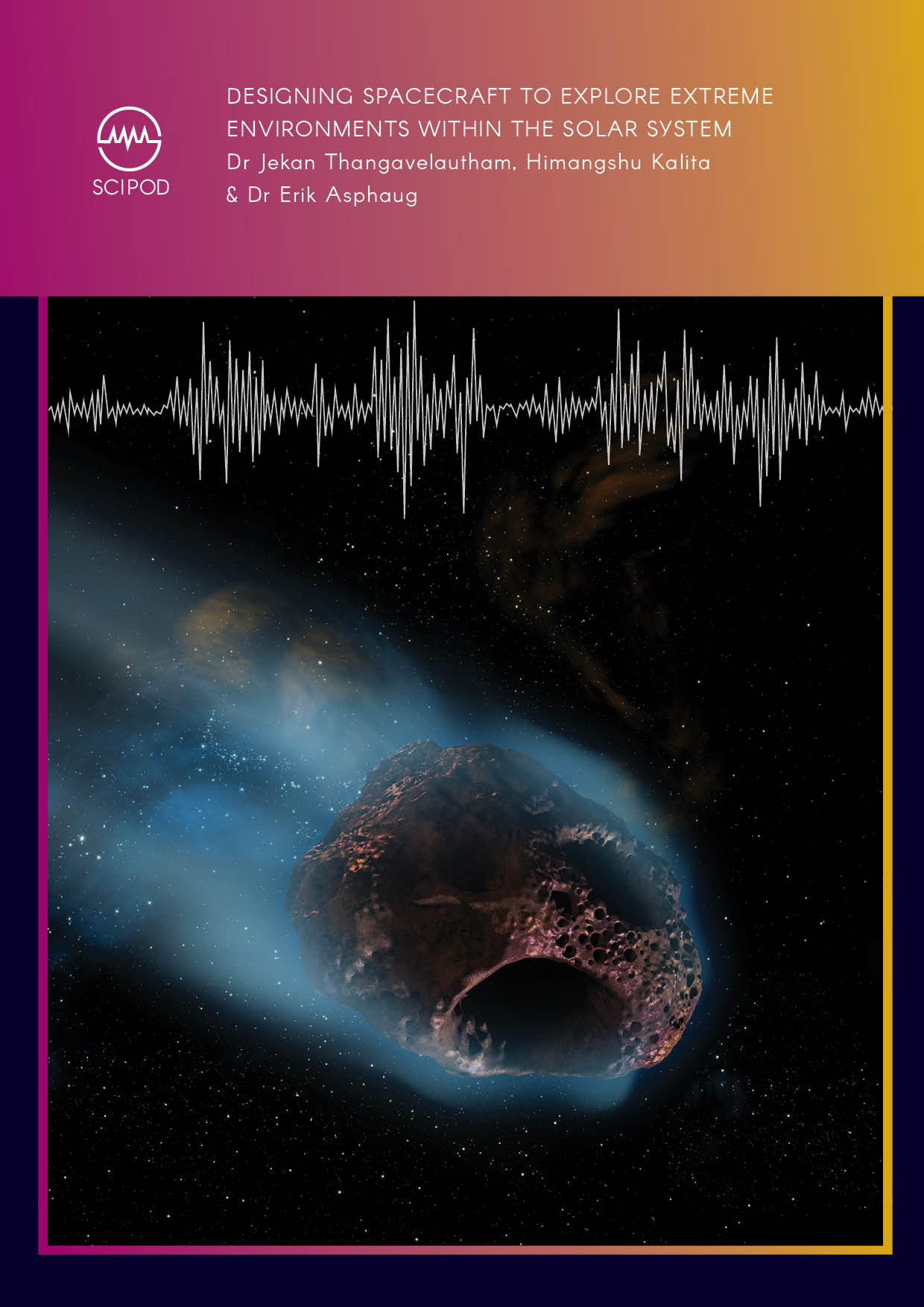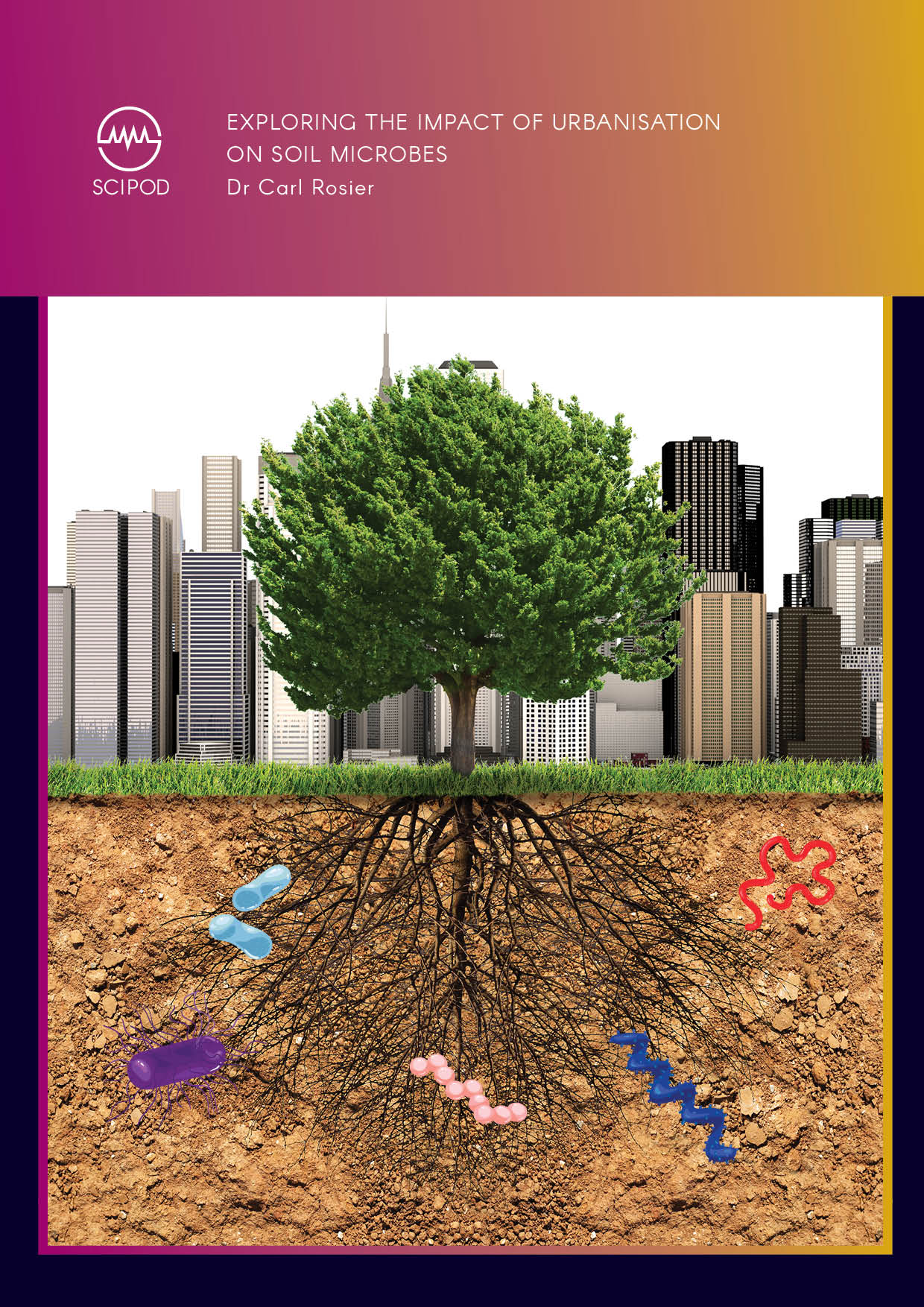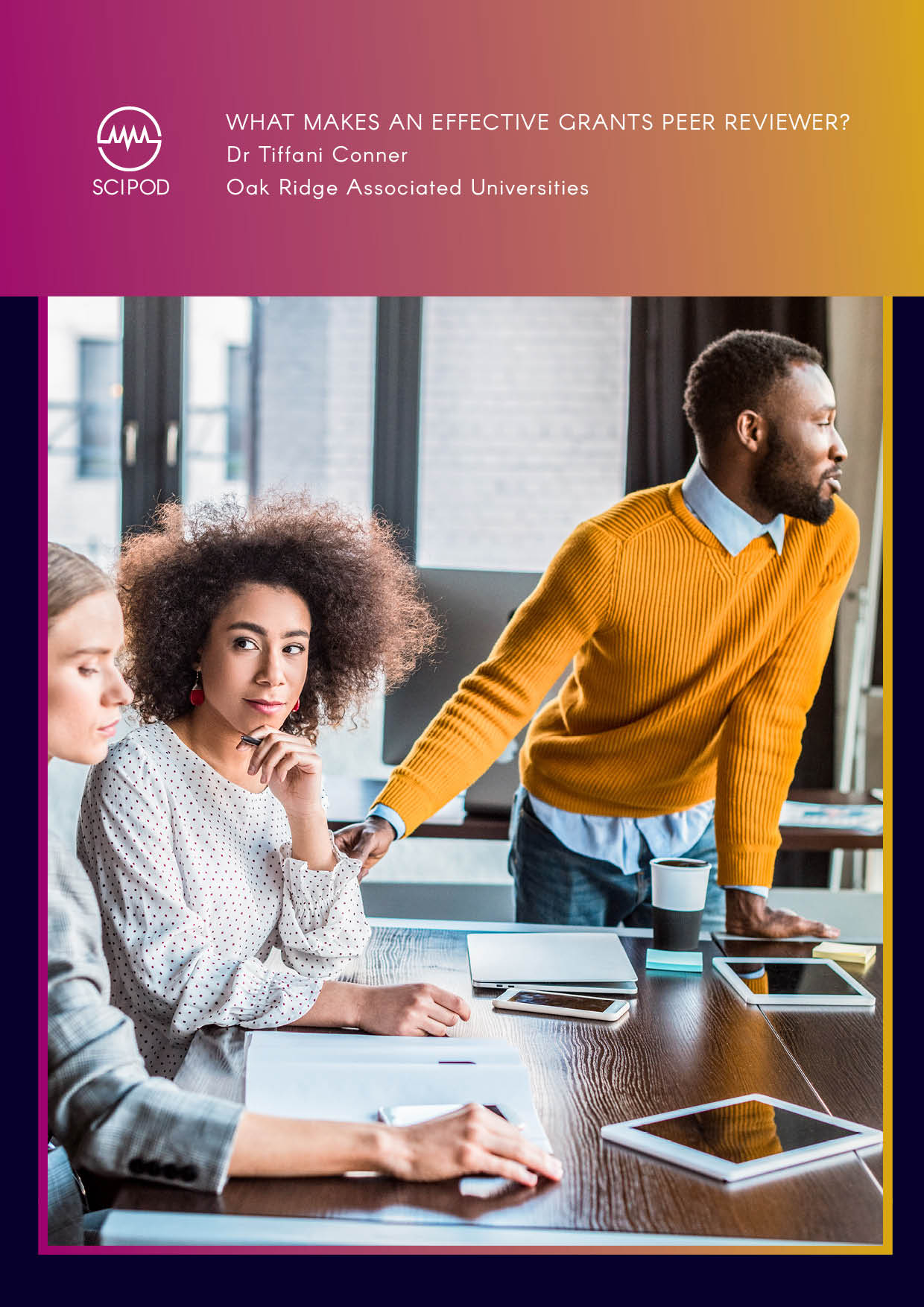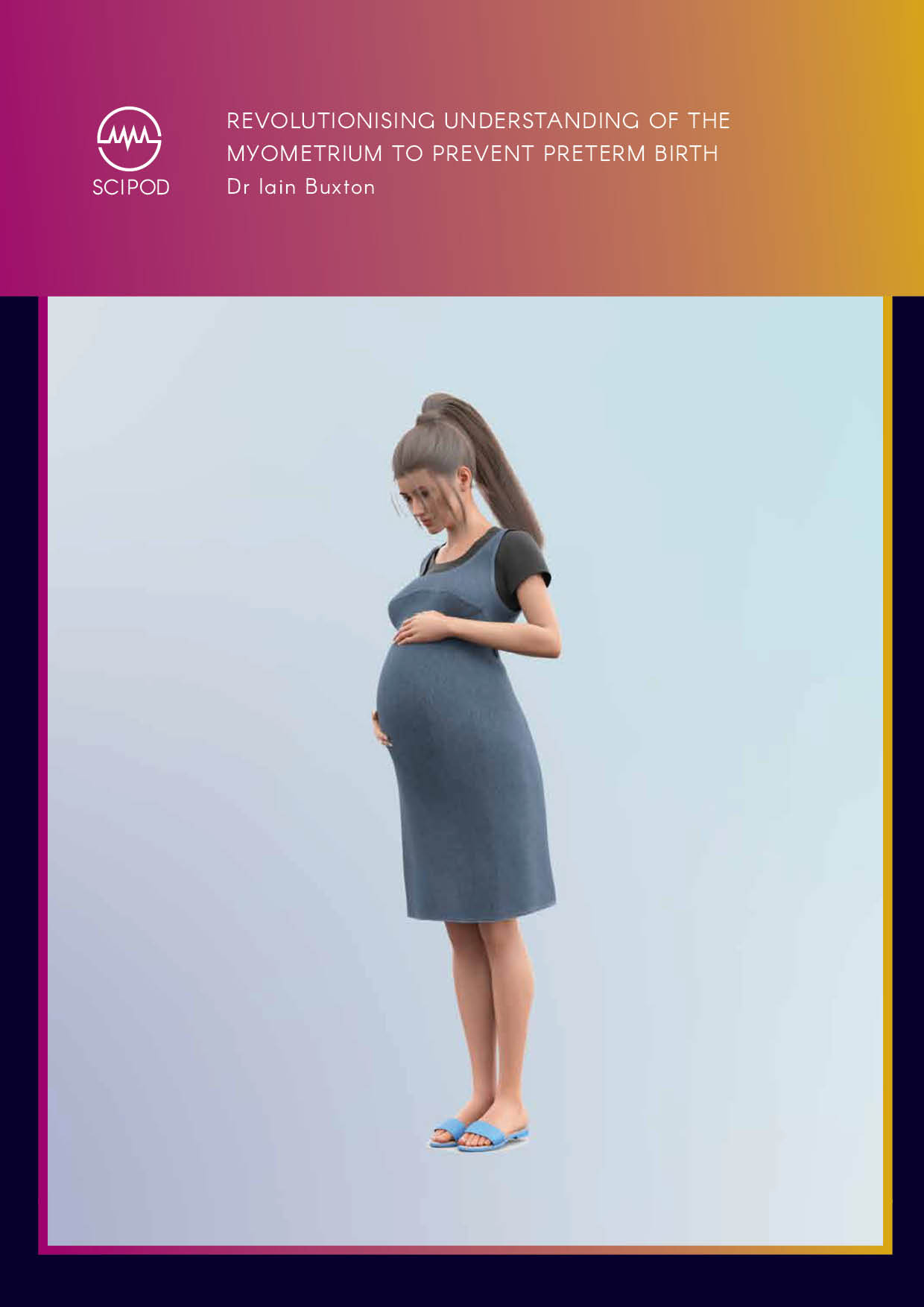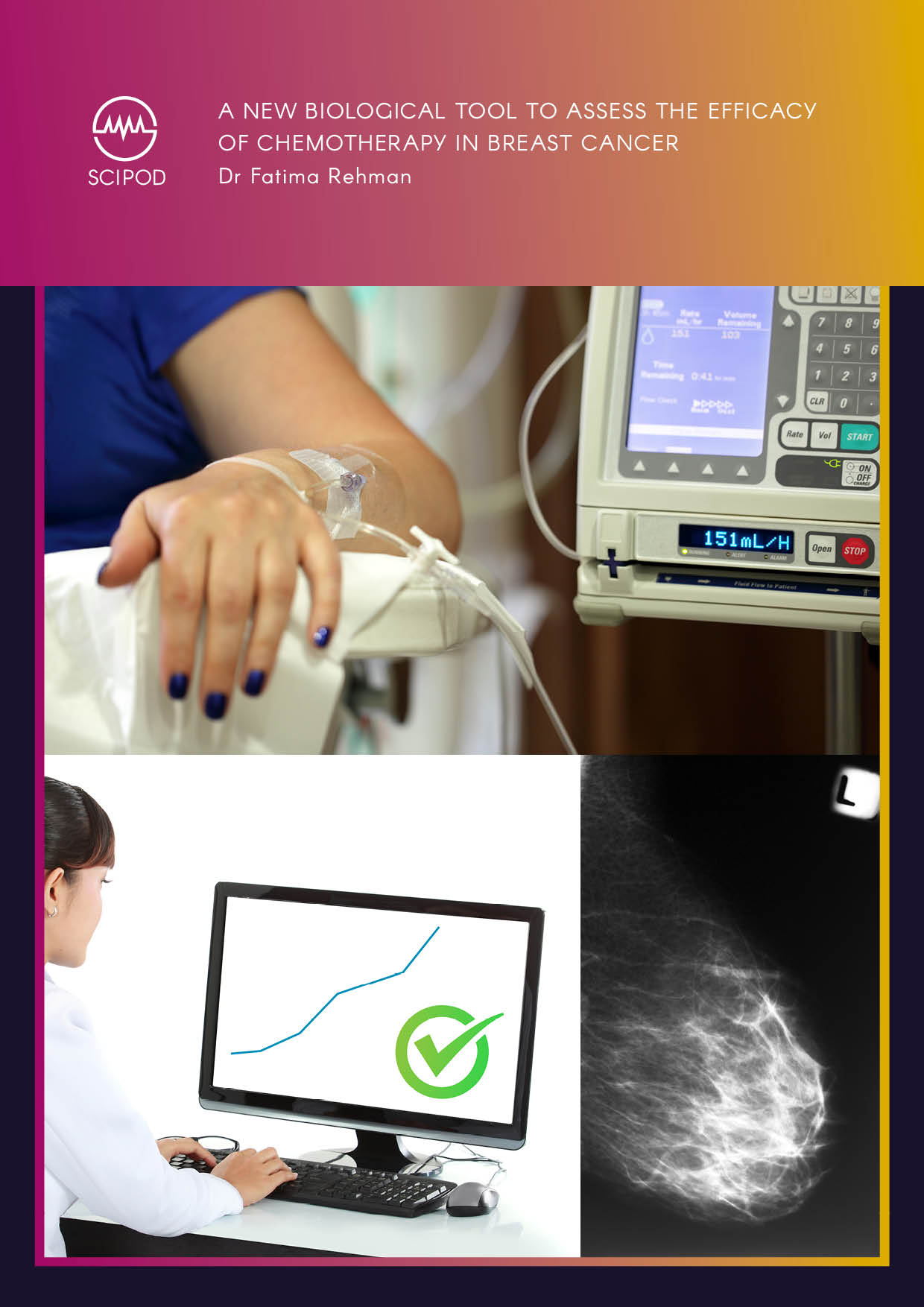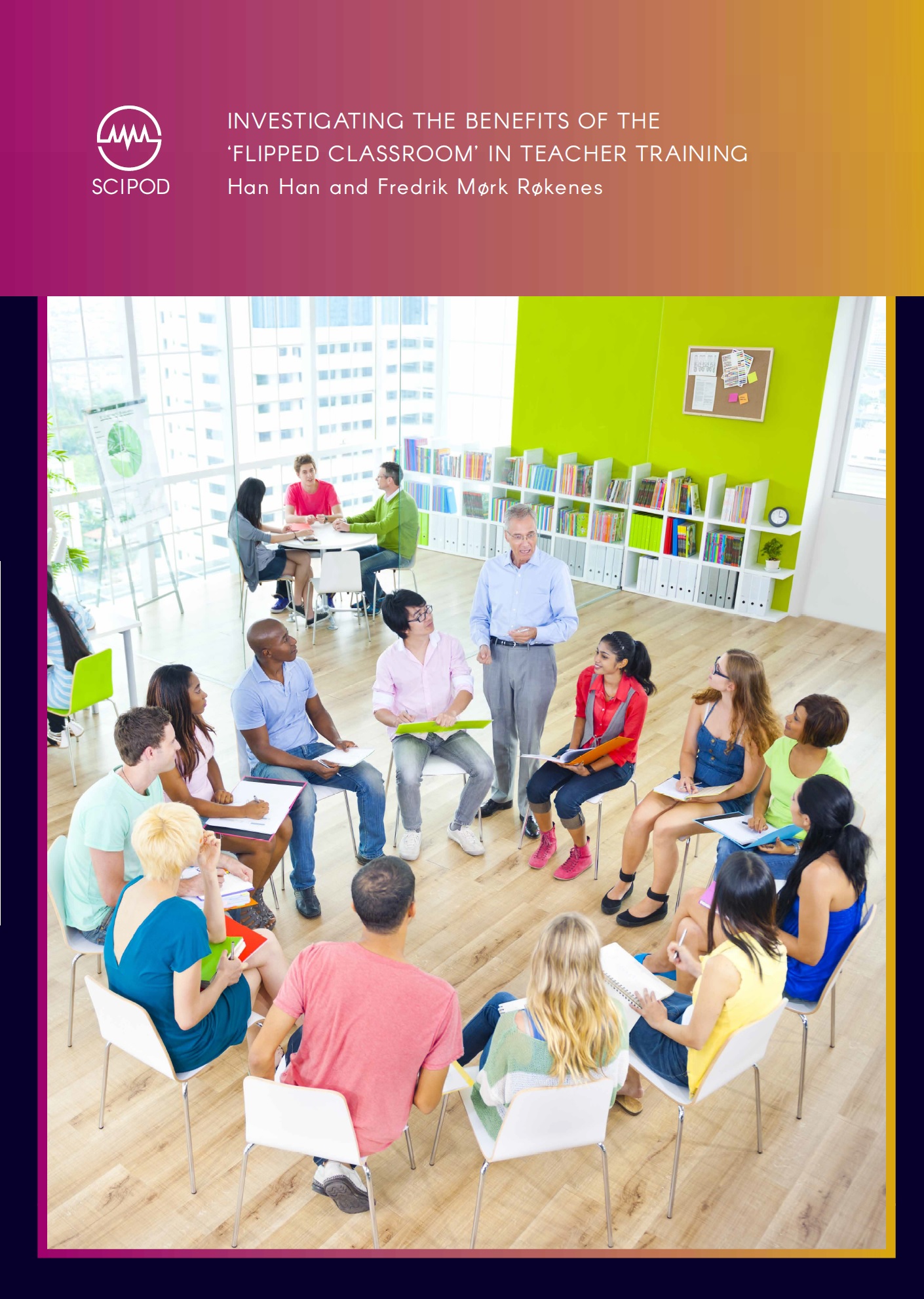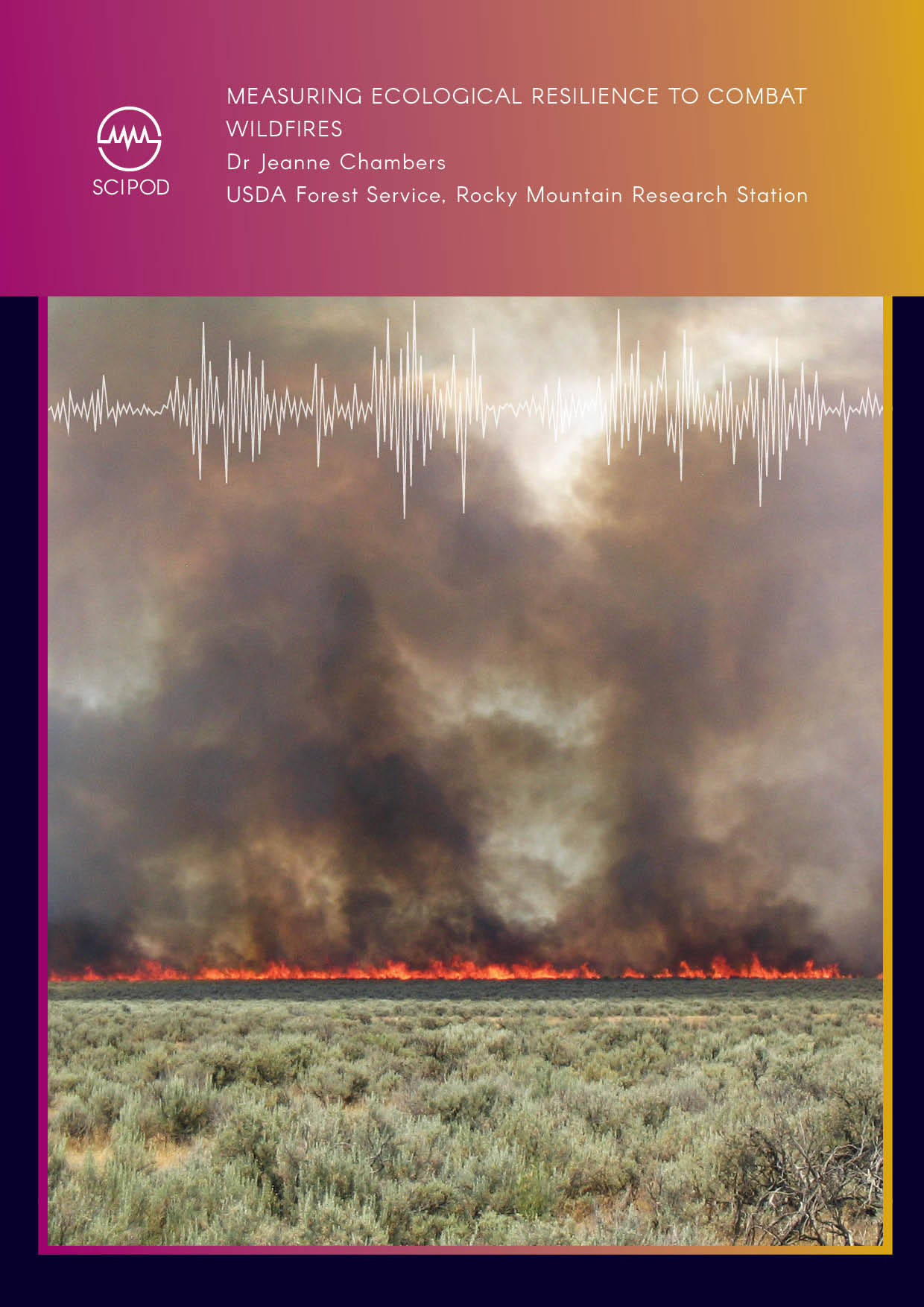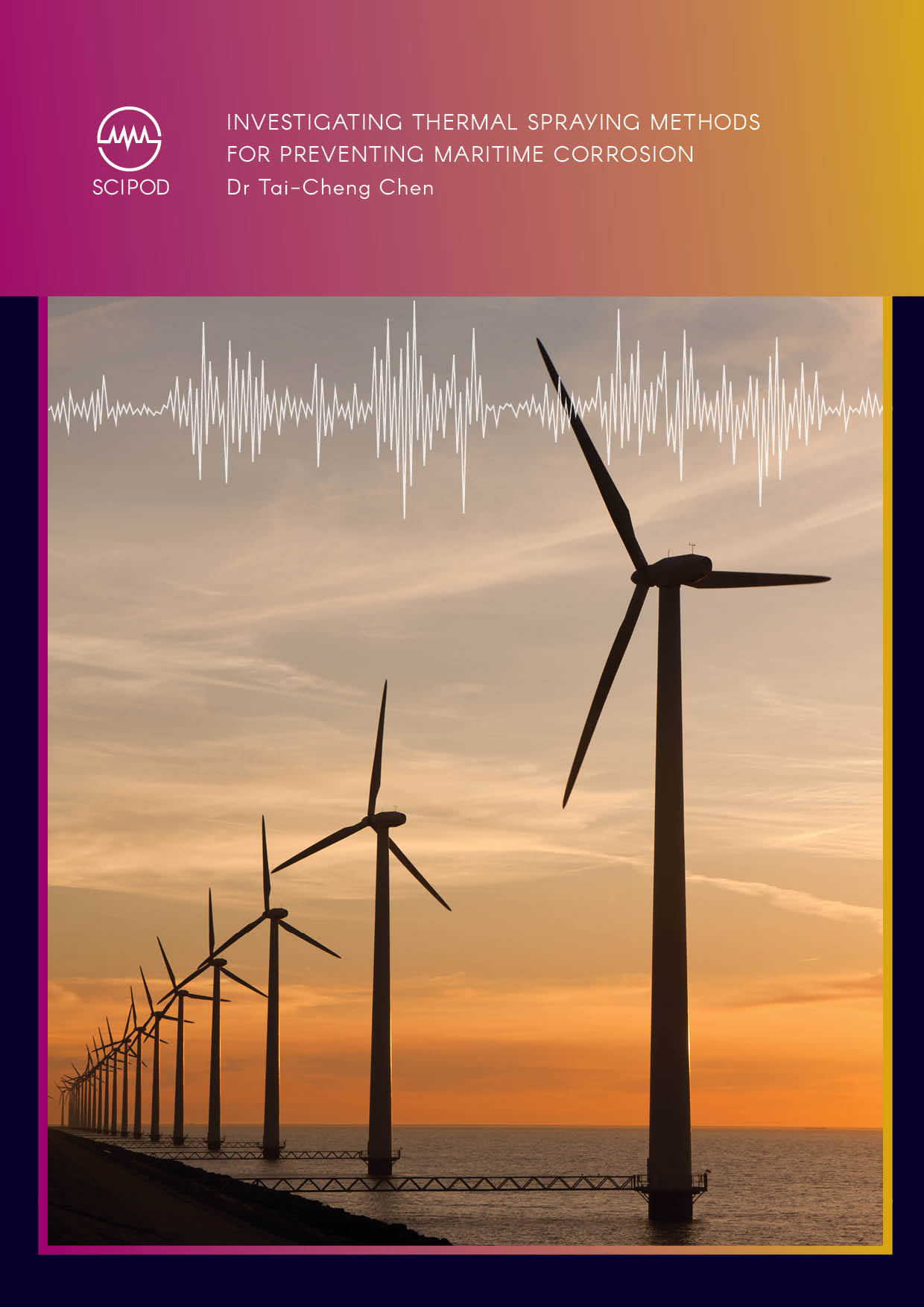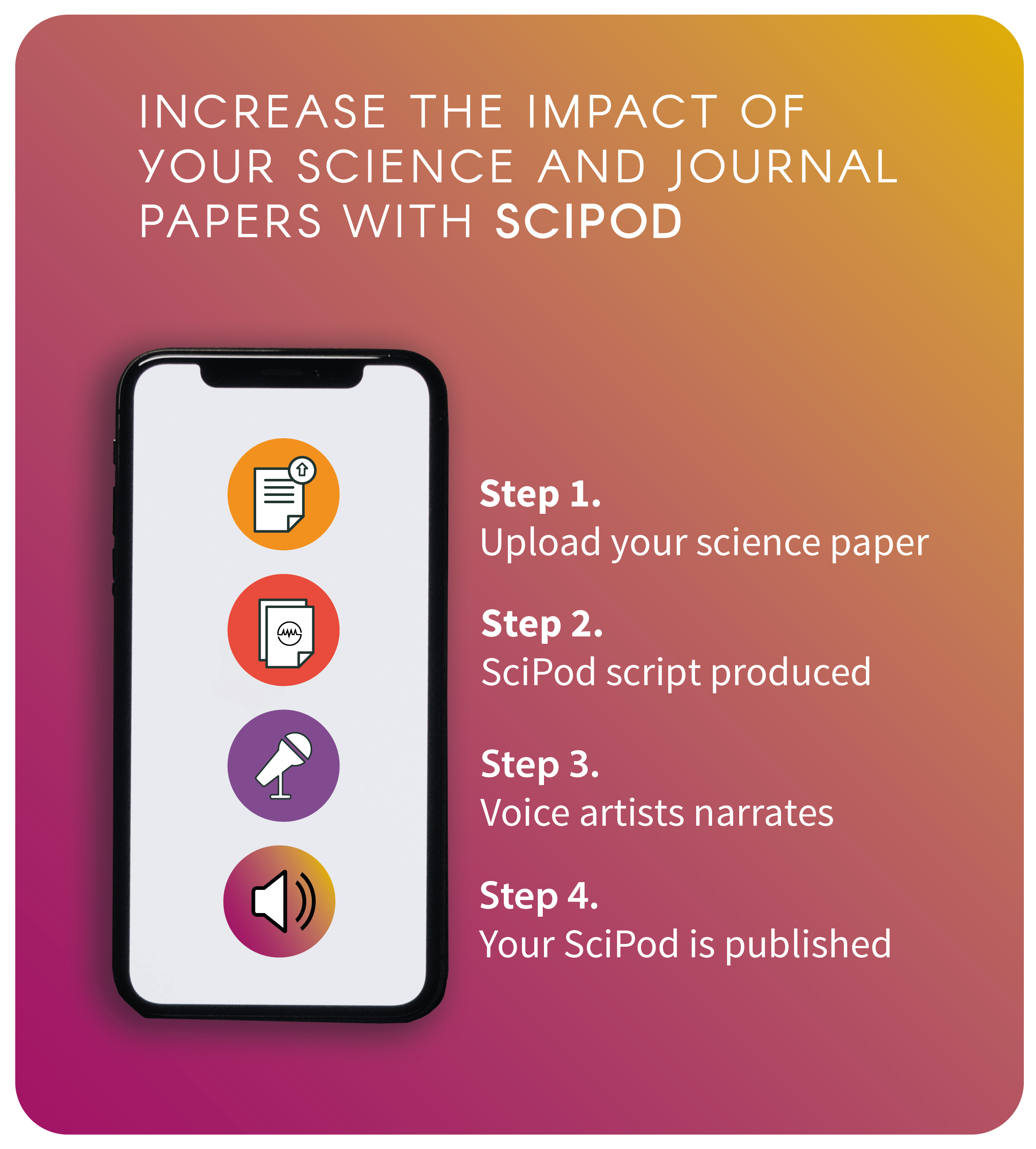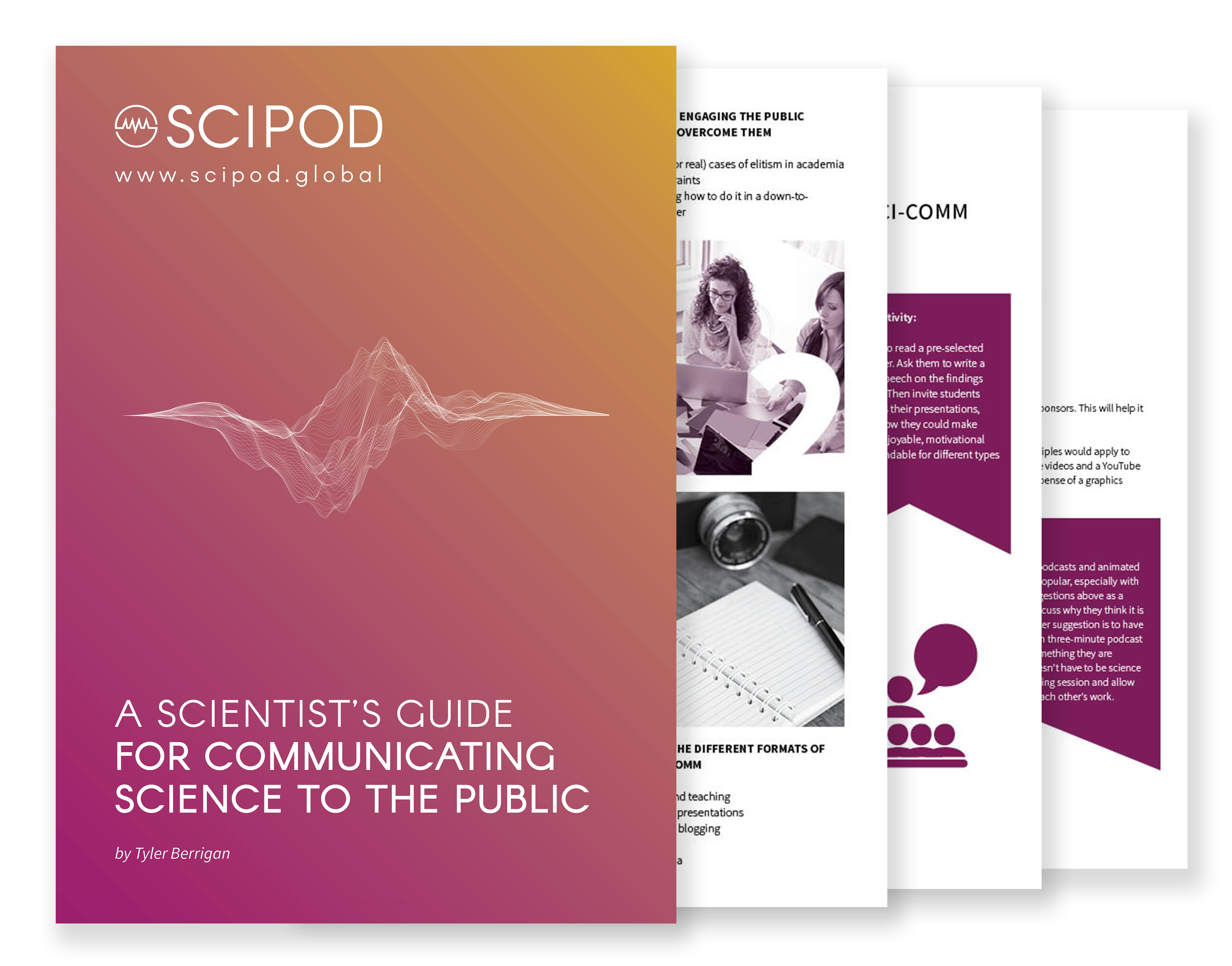Welcome to SciComm Radio
An exclusive interview series with leading scientists and science communicators
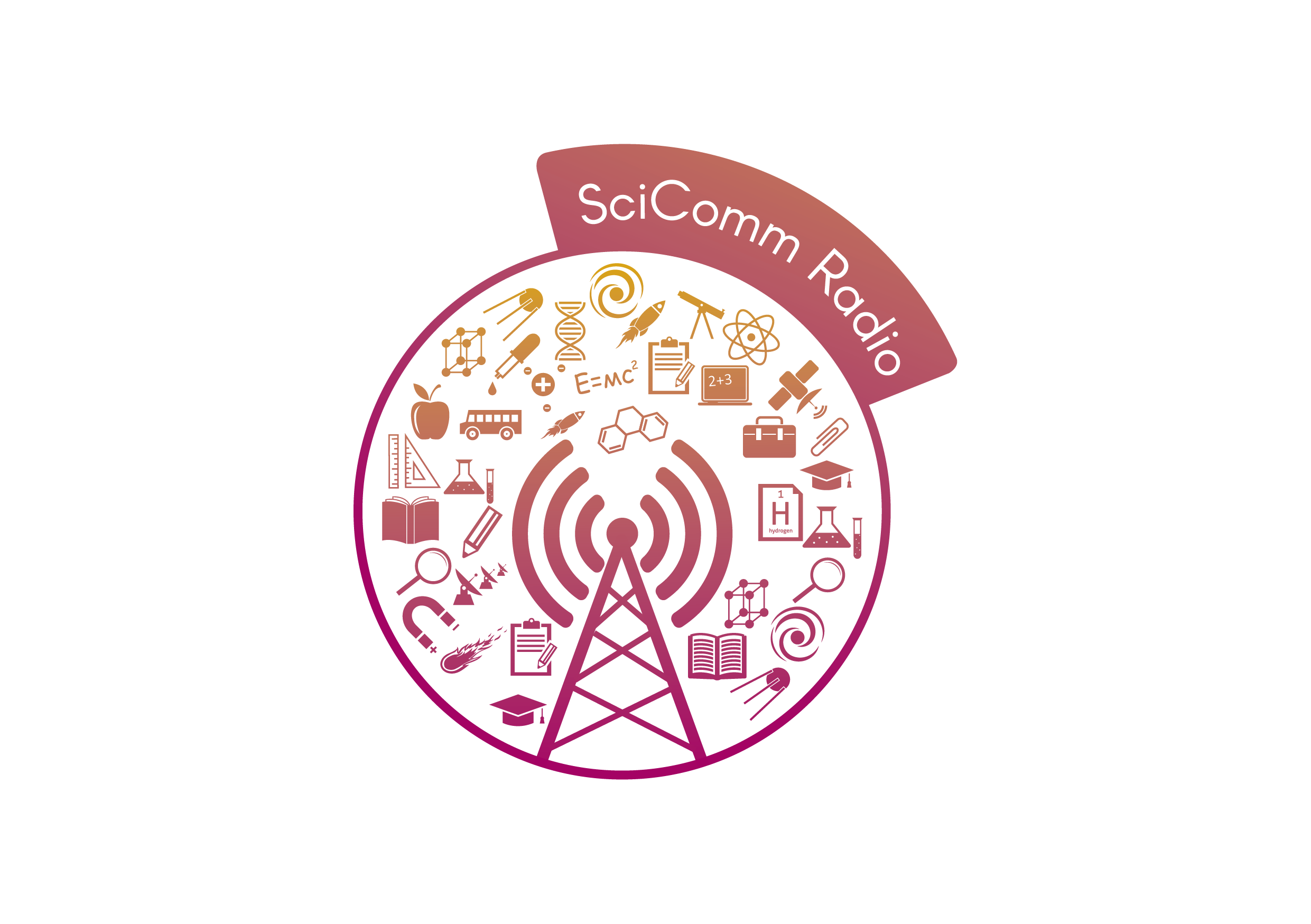
Click Below To Listen To A SciPod Radio Episode
Dr Edward Andrew – Critical Reflections on The Theology of Liberalism
Dr Edward Andrew – Critical Reflections on The Theology of Liberalism
Original Article Reference
This SciPod is a summary of the paper ‘The Theology of Liberalism: Political Philosophy and the Justice of God’, from The European Legacy. https://doi.org/10.1080/10848770.2021.1906625
About this episode
This work is licensed under a Creative Commons Attribution 4.0 International License. 
What does this mean?
Share: You can copy and redistribute the material in any medium or format
Adapt: You can change, and build upon the material for any purpose, even commercially.
Credit: You must give appropriate credit, provide a link to the license, and indicate if changes were made.
More episodes
Increase the impact of your research
• Good science communication helps people make informed decisions and motivates them to take appropriate and affirmative action.
• Good science communication encourages everyday people to be scientifically literate so that they can analyse the integrity and legitimacy of information.
• Good science communication encourages people into STEM-related fields of study and employment.
• Good public science communication fosters a community around research that includes both members of the public, policymakers and scientists.
• In a recent survey, 75% of people suggested they would prefer to listen to an interesting story than read it.

Step 1 Upload your science paper
Step 2 SciPod script written
Step 3 Voice audio recorded
Step 4 SciPod published
Dr Darren Sharpe – Cultivating Young People’s Empowerment and Participation in Society
Dr Darren Sharpe – Cultivating Young People’s Empowerment and Participation in Society
About this episode
More episodes
This work is licensed under a Creative Commons Attribution 4.0 International License. 
What does this mean?
Share: You can copy and redistribute the material in any medium or format
Adapt: You can change, and build upon the material for any purpose, even commercially.
Credit: You must give appropriate credit, provide a link to the license, and indicate if changes were made.
Increase the impact of your research
• Good science communication helps people make informed decisions and motivates them to take appropriate and affirmative action.
• Good science communication encourages everyday people to be scientifically literate so that they can analyse the integrity and legitimacy of information.
• Good science communication encourages people into STEM-related fields of study and employment.
• Good public science communication fosters a community around research that includes both members of the public, policymakers and scientists.
• In a recent survey, 75% of people suggested they would prefer to listen to an interesting story than read it.

Step 1 Upload your science paper
Step 2 SciPod script written
Step 3 Voice audio recorded
Step 4 SciPod published
Dr Christa Mulder – Understanding How Flowering Plants Respond to Climate Change
Dr Christa Mulder – Understanding How Flowering Plants Respond to Climate Change
About this episode
More episodes
This work is licensed under a Creative Commons Attribution 4.0 International License. 
What does this mean?
Share: You can copy and redistribute the material in any medium or format
Adapt: You can change, and build upon the material for any purpose, even commercially.
Credit: You must give appropriate credit, provide a link to the license, and indicate if changes were made.
Increase the impact of your research
• Good science communication helps people make informed decisions and motivates them to take appropriate and affirmative action.
• Good science communication encourages everyday people to be scientifically literate so that they can analyse the integrity and legitimacy of information.
• Good science communication encourages people into STEM-related fields of study and employment.
• Good public science communication fosters a community around research that includes both members of the public, policymakers and scientists.
• In a recent survey, 75% of people suggested they would prefer to listen to an interesting story than read it.

Step 1 Upload your science paper
Step 2 SciPod script written
Step 3 Voice audio recorded
Step 4 SciPod published
Dr Santiago Septien Stringel | Transforming Human Waste into Sustainable Products
Dr Santiago Septien Stringel | Transforming Human Waste into Sustainable Products
Original Article Reference
This SciPod is a summary of the paper ‘Effect of drying on the physical and chemical properties of faecal sludge for its reuse’ from the Journal of Environmental Chemical Engineering. doi.org/10.1016/j.jece.2019.103652
About this episode
Faecal sludge, a material derived from human waste, can be difficult to dispose of and causes significant disease and pollution worldwide. However, it also shows potential as a fuel, fertiliser and even a building material, if properly treated. Dr Santiago [san-tee-ah-go] Septien [sep-tee-uhn] Stringel and his team at the WASH R&D [wash R and D] Centre of the University of KwaZulu-Natal [kwah-zoo-loo-nay-taal], in Durban, South Africa, have been investigating the process for drying faecal sludge, towards developing new ways of transforming it into sustainable products.
This work is licensed under a Creative Commons Attribution 4.0 International License. 
What does this mean?
Share: You can copy and redistribute the material in any medium or format
Adapt: You can change, and build upon the material for any purpose, even commercially.
Credit: You must give appropriate credit, provide a link to the license, and indicate if changes were made.
More episodes
Increase the impact of your research
• Good science communication helps people make informed decisions and motivates them to take appropriate and affirmative action.
• Good science communication encourages everyday people to be scientifically literate so that they can analyse the integrity and legitimacy of information.
• Good science communication encourages people into STEM-related fields of study and employment.
• Good public science communication fosters a community around research that includes both members of the public, policymakers and scientists.
• In a recent survey, 75% of people suggested they would prefer to listen to an interesting story than read it.

Step 1 Upload your science paper
Step 2 SciPod script written
Step 3 Voice audio recorded
Step 4 SciPod published
The Geological History of Once-Glaciated Regions Affects Current and Future Earth Surface Processes | Dr Alison Anders
The Geological History of Once-Glaciated Regions Affects Current and Future Earth Surface Processes | Dr Alison Anders
Original Article Reference
This SciPod is a summary of the paper ‘Impacts of Quaternary History on Critical Zone Structure and Processes: Examples and a Conceptual Model From the Intensively Managed Landscapes Critical Zone Observatory’, from Frontiers in Earth Science. doi.org/10.3389/feart.2018.00024
About this episode
Over the past few millions of years, a succession of ice ages has profoundly influenced the geology of Earth’s northerly latitudes. These past events continue to influence our lives today – particularly in the fertile regions we now rely on for agriculture. By tracing the advances and retreats of ice sheets, Dr Alison Anders at the University of Illinois is gaining important new insights into how the landscapes and ecosystems of these regions are intrinsically linked to the geological past. Her team is also revealing how these areas are responding to a changing climate, and to complex human relationships with the land.
This work is licensed under a Creative Commons Attribution 4.0 International License. 
What does this mean?
Share: You can copy and redistribute the material in any medium or format
Adapt: You can change, and build upon the material for any purpose, even commercially.
Credit: You must give appropriate credit, provide a link to the license, and indicate if changes were made.
More episodes
Increase the impact of your research
• Good science communication helps people make informed decisions and motivates them to take appropriate and affirmative action.
• Good science communication encourages everyday people to be scientifically literate so that they can analyse the integrity and legitimacy of information.
• Good science communication encourages people into STEM-related fields of study and employment.
• Good public science communication fosters a community around research that includes both members of the public, policymakers and scientists.
• In a recent survey, 75% of people suggested they would prefer to listen to an interesting story than read it.

Step 1 Upload your science paper
Step 2 SciPod script written
Step 3 Voice audio recorded
Step 4 SciPod published
The 2022 Prince Mahidol Award Conference: Building the World We Want
The 2022 Prince Mahidol Award Conference: Building the World We Want
About this episode
More episodes
This work is licensed under a Creative Commons Attribution 4.0 International License. 
What does this mean?
Share: You can copy and redistribute the material in any medium or format
Adapt: You can change, and build upon the material for any purpose, even commercially.
Credit: You must give appropriate credit, provide a link to the license, and indicate if changes were made.
Increase the impact of your research
• Good science communication helps people make informed decisions and motivates them to take appropriate and affirmative action.
• Good science communication encourages everyday people to be scientifically literate so that they can analyse the integrity and legitimacy of information.
• Good science communication encourages people into STEM-related fields of study and employment.
• Good public science communication fosters a community around research that includes both members of the public, policymakers and scientists.
• In a recent survey, 75% of people suggested they would prefer to listen to an interesting story than read it.

Step 1 Upload your science paper
Step 2 SciPod script written
Step 3 Voice audio recorded
Step 4 SciPod published
Understanding Astrochemistry
Understanding Astrochemistry
About this episode
More episodes
This work is licensed under a Creative Commons Attribution 4.0 International License. 
What does this mean?
Share: You can copy and redistribute the material in any medium or format
Adapt: You can change, and build upon the material for any purpose, even commercially.
Credit: You must give appropriate credit, provide a link to the license, and indicate if changes were made.
Increase the impact of your research
• Good science communication helps people make informed decisions and motivates them to take appropriate and affirmative action.
• Good science communication encourages everyday people to be scientifically literate so that they can analyse the integrity and legitimacy of information.
• Good science communication encourages people into STEM-related fields of study and employment.
• Good public science communication fosters a community around research that includes both members of the public, policymakers and scientists.
• In a recent survey, 75% of people suggested they would prefer to listen to an interesting story than read it.

Step 1 Upload your science paper
Step 2 SciPod script written
Step 3 Voice audio recorded
Step 4 SciPod published
Effects of DNA Repair Mechanisms, Oestrogen and Environmental Chemicals on Risk for Breast Cancer | Dr Joseph Jerry
Effects of DNA Repair Mechanisms, Oestrogen and Environmental Chemicals on Risk for Breast Cancer | Dr Joseph Jerry
Original Article Reference
This SciPod is a summary of https://doi.org/10.33548/SCIENTIA721
About this episode
All women are exposed to oestrogen from puberty through menopause. Oestrogen is a natural hormone that is important for breast development and the maintenance of tissues in women but is also linked to an increased risk of breast cancer. As many as 1 in 8 women in the USA will be diagnosed with breast cancer over their lifetime, and the majority of these breast cancers are sensitive to oestrogen. Dr Joseph Jerry and his collaborators at the University of Massachusetts are studying the environmental exposures and genetic differences that alter the consequences of exposure to oestrogens.
This work is licensed under a Creative Commons Attribution 4.0 International License. 
What does this mean?
Share: You can copy and redistribute the material in any medium or format
Adapt: You can change, and build upon the material for any purpose, even commercially.
Credit: You must give appropriate credit, provide a link to the license, and indicate if changes were made.
More episodes
Increase the impact of your research
• Good science communication helps people make informed decisions and motivates them to take appropriate and affirmative action.
• Good science communication encourages everyday people to be scientifically literate so that they can analyse the integrity and legitimacy of information.
• Good science communication encourages people into STEM-related fields of study and employment.
• Good public science communication fosters a community around research that includes both members of the public, policymakers and scientists.
• In a recent survey, 75% of people suggested they would prefer to listen to an interesting story than read it.

Step 1 Upload your science paper
Step 2 SciPod script written
Step 3 Voice audio recorded
Step 4 SciPod published
Does Mechanical Ventilation Cause Further Brain Trauma? | Dr Thiago Bassi
Does Mechanical Ventilation Cause Further Brain Trauma? | Dr Thiago Bassi
Original Article Reference
This SciPod is a summary of the paper ‘Systematic review of cognitive impairment and brain insult after mechanical ventilation’ published in Critical Care. DOI: https://doi.org/10.1186/s13054-021-03521-9
About this episode
Mechanical ventilation is a medical treatment that artificially enables the body to breathe. Despite being a potentially life-saving intervention, there are concerns it can cause damage to vital organs, such as the brain and lungs. Dr Thiago Bassi from Simon Fraser University in Canada, has undertaken a review of published studies in this field. His findings indicate a potential link between ventilator usage and cognitive impairment whilst highlighting the need for further research.
This work is licensed under a Creative Commons Attribution 4.0 International License. 
What does this mean?
Share: You can copy and redistribute the material in any medium or format
Adapt: You can change, and build upon the material for any purpose, even commercially.
Credit: You must give appropriate credit, provide a link to the license, and indicate if changes were made.
More episodes
Increase the impact of your research
• Good science communication helps people make informed decisions and motivates them to take appropriate and affirmative action.
• Good science communication encourages everyday people to be scientifically literate so that they can analyse the integrity and legitimacy of information.
• Good science communication encourages people into STEM-related fields of study and employment.
• Good public science communication fosters a community around research that includes both members of the public, policymakers and scientists.
• In a recent survey, 75% of people suggested they would prefer to listen to an interesting story than read it.

Step 1 Upload your science paper
Step 2 SciPod script written
Step 3 Voice audio recorded
Step 4 SciPod published
Revealing How Ocean Chemistry Controlled Earth’s Ancient Atmosphere and Microbial Evolution | Dr Romain Guilbaud
Revealing How Ocean Chemistry Controlled Earth’s Ancient Atmosphere and Microbial Evolution | Dr Romain Guilbaud
Original Article Reference
This SciPod is a summary of the paper ‘Phosphorus-limited conditions in the early Neoproterozoic ocean maintained low levels of atmospheric oxygen’, from Nature Geoscience. https://doi.org/10.1038/s41561-020-0548-7
About this episode
Important clues buried within ancient rocks that were deposited on the ocean floor around one billion of years ago could help scientists understand the evolutionary history of life on Earth. Dr Romain Guilbaud and an international team of researchers from the UK and China analysed the chemical composition of these rocky sediments from the Huainan Basin in North China. Their findings demonstrate how changes in ocean chemistry occurring between one billion and 800 million years ago strongly limited the production of atmospheric oxygen, which is a necessary prerequisite for the planet to host complex life.
This work is licensed under a Creative Commons Attribution 4.0 International License. 
What does this mean?
Share: You can copy and redistribute the material in any medium or format
Adapt: You can change, and build upon the material for any purpose, even commercially.
Credit: You must give appropriate credit, provide a link to the license, and indicate if changes were made.
More episodes
Increase the impact of your research
• Good science communication helps people make informed decisions and motivates them to take appropriate and affirmative action.
• Good science communication encourages everyday people to be scientifically literate so that they can analyse the integrity and legitimacy of information.
• Good science communication encourages people into STEM-related fields of study and employment.
• Good public science communication fosters a community around research that includes both members of the public, policymakers and scientists.
• In a recent survey, 75% of people suggested they would prefer to listen to an interesting story than read it.

Step 1 Upload your science paper
Step 2 SciPod script written
Step 3 Voice audio recorded
Step 4 SciPod published
Discovering Unmapped Molecular Targets for Novel Covalent Drugs | Dr Mikail Abbasov
Discovering Unmapped Molecular Targets for Novel Covalent Drugs | Dr Mikail Abbasov
Original Article Reference
This SciPod is a summary of https://doi.org/10.33548/SCIENTIA779
About this episode
This work is licensed under a Creative Commons Attribution 4.0 International License. 
What does this mean?
Share: You can copy and redistribute the material in any medium or format
Adapt: You can change, and build upon the material for any purpose, even commercially.
Credit: You must give appropriate credit, provide a link to the license, and indicate if changes were made.
More episodes
Increase the impact of your research
• Good science communication helps people make informed decisions and motivates them to take appropriate and affirmative action.
• Good science communication encourages everyday people to be scientifically literate so that they can analyse the integrity and legitimacy of information.
• Good science communication encourages people into STEM-related fields of study and employment.
• Good public science communication fosters a community around research that includes both members of the public, policymakers and scientists.
• In a recent survey, 75% of people suggested they would prefer to listen to an interesting story than read it.

Step 1 Upload your science paper
Step 2 SciPod script written
Step 3 Voice audio recorded
Step 4 SciPod published
Understanding Why Obesity is a Risk Factor for Cancer | Dr Aliccia Bollig-Fischer
Understanding Why Obesity is a Risk Factor for Cancer | Dr Aliccia Bollig-Fischer
Original Article Reference
This SciPod is a summary of https://doi.org/10.33548/SCIENTIA780
About this episode
Cancer can be caused by genetic mutations or epigenetic alterations, which are changes to the way DNA is processed, rather than to the DNA itself. These changes can be brought about by obesity, and more specifically, oxidative stress and consequent reactive oxygen species. However, the molecular mechanisms by which this occurs are not well understood. Dr Aliccia Bollig-Fischer from Wayne State University School of Medicine in Michigan is studying these processes and paving the way for the development of novel cancer therapeutics.
This work is licensed under a Creative Commons Attribution 4.0 International License. 
What does this mean?
Share: You can copy and redistribute the material in any medium or format
Adapt: You can change, and build upon the material for any purpose, even commercially.
Credit: You must give appropriate credit, provide a link to the license, and indicate if changes were made.
More episodes
Increase the impact of your research
• Good science communication helps people make informed decisions and motivates them to take appropriate and affirmative action.
• Good science communication encourages everyday people to be scientifically literate so that they can analyse the integrity and legitimacy of information.
• Good science communication encourages people into STEM-related fields of study and employment.
• Good public science communication fosters a community around research that includes both members of the public, policymakers and scientists.
• In a recent survey, 75% of people suggested they would prefer to listen to an interesting story than read it.

Step 1 Upload your science paper
Step 2 SciPod script written
Step 3 Voice audio recorded
Step 4 SciPod published
Discovery of Neurotrophic Factor-α1 Reveals New Treatment Strategies for Stress-induced Neurodegenerative Diseases and Depression | Dr Y. Peng Loh
Discovery of Neurotrophic Factor-α1 Reveals New Treatment Strategies for Stress-induced Neurodegenerative Diseases and Depression | Dr Y. Peng Loh
Original Article Reference
This SciPod is a summary of https://doi.org/10.33548/SCIENTIA787
About this episode
Stress produces numerous negative effects on the human body. Lying deep within the brain, one particularly sensitive area is the hippocampus, where chronic exposure to stress hormones can lead to the degeneration and death of neurons. Thankfully, the brain holds defence mechanisms that block some of these negative effects. Deciphering these mechanisms with the aim of better treating neurodegenerative diseases and depression is Dr Y. Peng Loh from the Eunice Kennedy Shriver National Institute of Child Health and Human Development in the USA.
This work is licensed under a Creative Commons Attribution 4.0 International License. 
What does this mean?
Share: You can copy and redistribute the material in any medium or format
Adapt: You can change, and build upon the material for any purpose, even commercially.
Credit: You must give appropriate credit, provide a link to the license, and indicate if changes were made.
More episodes
Increase the impact of your research
• Good science communication helps people make informed decisions and motivates them to take appropriate and affirmative action.
• Good science communication encourages everyday people to be scientifically literate so that they can analyse the integrity and legitimacy of information.
• Good science communication encourages people into STEM-related fields of study and employment.
• Good public science communication fosters a community around research that includes both members of the public, policymakers and scientists.
• In a recent survey, 75% of people suggested they would prefer to listen to an interesting story than read it.

Step 1 Upload your science paper
Step 2 SciPod script written
Step 3 Voice audio recorded
Step 4 SciPod published
Teaching Physics through Kinaesthetic Learning Activities | Dr AJ Richards
Teaching Physics through Kinaesthetic Learning Activities | Dr AJ Richards
Original Article Reference
This SciPod is a summary of the chapter ‘Teaching Mechanics Using Kinaesthetic Learning Activities’, from The Physics Teacher. https://doi.org/10.1119/1.5084926
About this episode
Explaining complex physical phenomena to students in simple and relatable ways can be challenging. This is particularly true for abstract concepts or phenomena that can only be observed using advanced equipment. Dr AJ Richards, an Assistant Professor of Physics at the College of New Jersey, has been exploring the potential of Kinaesthetic Learning Activities – multi-sensory teaching strategies involving hands-on experiences – to convey abstract and microscopic physics more effectively in the classroom.
This work is licensed under a Creative Commons Attribution 4.0 International License. 
What does this mean?
Share: You can copy and redistribute the material in any medium or format
Adapt: You can change, and build upon the material for any purpose, even commercially.
Credit: You must give appropriate credit, provide a link to the license, and indicate if changes were made.
More episodes
Increase the impact of your research
• Good science communication helps people make informed decisions and motivates them to take appropriate and affirmative action.
• Good science communication encourages everyday people to be scientifically literate so that they can analyse the integrity and legitimacy of information.
• Good science communication encourages people into STEM-related fields of study and employment.
• Good public science communication fosters a community around research that includes both members of the public, policymakers and scientists.
• In a recent survey, 75% of people suggested they would prefer to listen to an interesting story than read it.

Step 1 Upload your science paper
Step 2 SciPod script written
Step 3 Voice audio recorded
Step 4 SciPod published
Can Seasonal Work Schemes Be Socially Just? | Ruth McAreavey
Can Seasonal Work Schemes Be Socially Just? | Ruth McAreavey
Original Article Reference
This SciPod is a summary of the paper ‘Seasonal worker schemes: Can they achieve social justice?’, from Europa XXI. doi.org/10.7163/Eu21.2019.37.3
About this episode
Seasonal workers often fill temporary positions that are poorly paid and commonly deemed undesirable by residents. While seasonal work schemes can benefit both employers and the local economy, they often fuel the uneven economic participation and marginalisation of migrants. Professor Ruth McAreavey of Newcastle University recently published a paper outlining issues that should be addressed if seasonal worker schemes are to achieve social justice.
This work is licensed under a Creative Commons Attribution 4.0 International License. 
What does this mean?
Share: You can copy and redistribute the material in any medium or format
Adapt: You can change, and build upon the material for any purpose, even commercially.
Credit: You must give appropriate credit, provide a link to the license, and indicate if changes were made.
More episodes
Increase the impact of your research
• Good science communication helps people make informed decisions and motivates them to take appropriate and affirmative action.
• Good science communication encourages everyday people to be scientifically literate so that they can analyse the integrity and legitimacy of information.
• Good science communication encourages people into STEM-related fields of study and employment.
• Good public science communication fosters a community around research that includes both members of the public, policymakers and scientists.
• In a recent survey, 75% of people suggested they would prefer to listen to an interesting story than read it.

Step 1 Upload your science paper
Step 2 SciPod script written
Step 3 Voice audio recorded
Step 4 SciPod published
Obsessive-compulsive Disorder: The Genetic Links Between Traits and Clinical Diagnosis
Obsessive-compulsive Disorder: The Genetic Links Between Traits and Clinical Diagnosis
Original Article Reference
This SciPod is a summary of the open access paper ‘Genome-wide association study of pediatric obsessive-compulsive traits: shared genetic risk between traits and disorder’, published in the journal Translational Psychiatry. https://doi.org/10.1038/s41398-020-01121-9
About this episode
Although obsessive-compulsive disorder (OCD) is a commonly occurring psychiatric disorder, the underlying genetic basis has until recently, remained poorly defined. Drs Christie Burton, Jennifer Crosbie, and Russell Schachar at The Hospital for Sick Children (SickKids) in Toronto, Canada, and Dr. Paul Arnold at the University of Calgary and The Mathison Centre for Mental Health Research & Education and their extensive network of collaborators conducted a genome-wide association study to address this key gap. These researchers are the first to empirically demonstrate that OCD and obsessive-compulsive traits have a shared genetic risk, and start to pinpoint the genetic basis of this.
This work is licensed under a Creative Commons Attribution 4.0 International License. 
What does this mean?
Share: You can copy and redistribute the material in any medium or format
Adapt: You can change, and build upon the material for any purpose, even commercially.
Credit: You must give appropriate credit, provide a link to the license, and indicate if changes were made.
More episodes
Increase the impact of your research
• Good science communication helps people make informed decisions and motivates them to take appropriate and affirmative action.
• Good science communication encourages everyday people to be scientifically literate so that they can analyse the integrity and legitimacy of information.
• Good science communication encourages people into STEM-related fields of study and employment.
• Good public science communication fosters a community around research that includes both members of the public, policymakers and scientists.
• In a recent survey, 75% of people suggested they would prefer to listen to an interesting story than read it.

Step 1 Upload your science paper
Step 2 SciPod script written
Step 3 Voice audio recorded
Step 4 SciPod published
Optimising Lubricant Oils to Boost Engine Efficiency | Ken Hope
Optimising Lubricant Oils to Boost Engine Efficiency | Ken Hope
Original Article Reference
This SciPod is a summary of the paper ‘PAO Contributions to Energy Efficiency in 0W-20 Passenger Car Engine Oils’, in Lubricants. https://doi.org/10.3390/lubricants6030073
About this episode
The engine of a typical passenger vehicle is made up of hundreds of mechanical parts. These parts require lubrication to prevent them from overheating and to keep them working efficiently. Ken Hope and his team at Chevron Phillips Chemical, headquartered in Texas, have analysed the extent to which different types of lubricant oils reduce friction. They then used this data to estimate how an optimised oil mixture can achieve an overall improvement in engine efficiency.
This work is licensed under a Creative Commons Attribution 4.0 International License. 
What does this mean?
Share: You can copy and redistribute the material in any medium or format
Adapt: You can change, and build upon the material for any purpose, even commercially.
Credit: You must give appropriate credit, provide a link to the license, and indicate if changes were made.
More episodes
Increase the impact of your research
• Good science communication helps people make informed decisions and motivates them to take appropriate and affirmative action.
• Good science communication encourages everyday people to be scientifically literate so that they can analyse the integrity and legitimacy of information.
• Good science communication encourages people into STEM-related fields of study and employment.
• Good public science communication fosters a community around research that includes both members of the public, policymakers and scientists.
• In a recent survey, 75% of people suggested they would prefer to listen to an interesting story than read it.

Step 1 Upload your science paper
Step 2 SciPod script written
Step 3 Voice audio recorded
Step 4 SciPod published
Teaching Algorithms to Caption Ultrasound Images | Dr Mohammad Alsharid
Teaching Algorithms to Caption Ultrasound Images | Dr Mohammad Alsharid
Original Article Reference
This SciPod is a summary of the conference proceedings ‘Captioning Ultrasound Images Automatically’, from the International Conference on Medical Image Computing and Computer-Assisted Intervention. doi.org/10.1007/978-3-030-32251-9_37
About this episode
Medical professionals require years of training before they can describe ultrasound images of developing foetuses. Dr Mohammad Alsharid and colleagues from the Institute of Biomedical Engineering and Nuffield Department of Women’s and Reproductive Health at the University of Oxford suggest that this task could one day be carried out by machine learning algorithms. In their latest study, the team showed how neural networks, trained by the expert knowledge of real sonographers, could convert subtle features within the images into accurate, readable captions.
This work is licensed under a Creative Commons Attribution 4.0 International License. 
What does this mean?
Share: You can copy and redistribute the material in any medium or format
Adapt: You can change, and build upon the material for any purpose, even commercially.
Credit: You must give appropriate credit, provide a link to the license, and indicate if changes were made.
More episodes
Increase the impact of your research
• Good science communication helps people make informed decisions and motivates them to take appropriate and affirmative action.
• Good science communication encourages everyday people to be scientifically literate so that they can analyse the integrity and legitimacy of information.
• Good science communication encourages people into STEM-related fields of study and employment.
• Good public science communication fosters a community around research that includes both members of the public, policymakers and scientists.
• In a recent survey, 75% of people suggested they would prefer to listen to an interesting story than read it.

Step 1 Upload your science paper
Step 2 SciPod script written
Step 3 Voice audio recorded
Step 4 SciPod published
Exploring the Surface Chemistry of Interstellar Dust
Exploring the Surface Chemistry of Interstellar Dust
About this episode
Original Article Reference
This animation is a summary of https://doi.org/10.3390/min11010026
More episodes
This work is licensed under a Creative Commons Attribution 4.0 International License. 
What does this mean?
Share: You can copy and redistribute the material in any medium or format
Adapt: You can change, and build upon the material for any purpose, even commercially.
Credit: You must give appropriate credit, provide a link to the license, and indicate if changes were made.
Increase the impact of your research
• Good science communication helps people make informed decisions and motivates them to take appropriate and affirmative action.
• Good science communication encourages everyday people to be scientifically literate so that they can analyse the integrity and legitimacy of information.
• Good science communication encourages people into STEM-related fields of study and employment.
• Good public science communication fosters a community around research that includes both members of the public, policymakers and scientists.
• In a recent survey, 75% of people suggested they would prefer to listen to an interesting story than read it.

Step 1 Upload your science paper
Step 2 SciPod script written
Step 3 Voice audio recorded
Step 4 SciPod published
Reinventing the Capacitor: The Topological Route of Electricity – Professor Valerii Vinokur | Professor Anna Razumnaya | Professor Igor Lukyanchuk
Reinventing the Capacitor: The Topological Route of Electricity – Professor Valerii Vinokur | Professor Anna Razumnaya | Professor Igor Lukyanchuk
Original Article Reference
This SciPod is a summary of https://doi.org/10.33548/SCIENTIA805
About this episode
Modern microelectronics is currently facing a profound challenge. The demand for even smaller and more closely packed electronics has hit a stumbling block: the power emitted in these devices releases more heat than can be efficiently removed. Now, Professors Valerii Vinokur, Anna Razumnaya, and Igor Lukyanchuk propose a solution based on the seemingly counterintuitive phenomenon of ‘negative capacitance’. The effect is surprisingly linked to an intriguing topological structure, which is found time and again across a broad range of scientific fields.
This work is licensed under a Creative Commons Attribution 4.0 International License. 
What does this mean?
Share: You can copy and redistribute the material in any medium or format
Adapt: You can change, and build upon the material for any purpose, even commercially.
Credit: You must give appropriate credit, provide a link to the license, and indicate if changes were made.
More episodes
Increase the impact of your research
• Good science communication helps people make informed decisions and motivates them to take appropriate and affirmative action.
• Good science communication encourages everyday people to be scientifically literate so that they can analyse the integrity and legitimacy of information.
• Good science communication encourages people into STEM-related fields of study and employment.
• Good public science communication fosters a community around research that includes both members of the public, policymakers and scientists.
• In a recent survey, 75% of people suggested they would prefer to listen to an interesting story than read it.

Step 1 Upload your science paper
Step 2 SciPod script written
Step 3 Voice audio recorded
Step 4 SciPod published
Designing Spacecraft to Explore Extreme Environments Within the Solar System | Dr Jekan Thanga
Designing Spacecraft to Explore Extreme Environments Within the Solar System | Dr Jekan Thanga
Original Article Reference
This SciPod is a summary of https://doi.org/10.33548/SCIENTIA804
About this episode
In the next few decades, upcoming technological advances will offer unprecedented opportunities to explore the solar system – both with autonomous robots, and through manned missions. Dr Jekan Thanga and the Space and Terrestrial Robotic Exploration (SpaceTREx) Laboratory at University of Arizona are at the forefront of efforts to design miniature spacecraft that will allow us to reach these distant worlds, and navigate their rugged, unfamiliar terrains. In the future, his team’s research could pave the way for the establishment of long-term, off-world human settlements, and the discovery of life in extreme, yet potentially habitable environments.
This work is licensed under a Creative Commons Attribution 4.0 International License. 
What does this mean?
Share: You can copy and redistribute the material in any medium or format
Adapt: You can change, and build upon the material for any purpose, even commercially.
Credit: You must give appropriate credit, provide a link to the license, and indicate if changes were made.
More episodes
Increase the impact of your research
• Good science communication helps people make informed decisions and motivates them to take appropriate and affirmative action.
• Good science communication encourages everyday people to be scientifically literate so that they can analyse the integrity and legitimacy of information.
• Good science communication encourages people into STEM-related fields of study and employment.
• Good public science communication fosters a community around research that includes both members of the public, policymakers and scientists.
• In a recent survey, 75% of people suggested they would prefer to listen to an interesting story than read it.

Step 1 Upload your science paper
Step 2 SciPod script written
Step 3 Voice audio recorded
Step 4 SciPod published
Exploring the Impact of Urbanisation on Soil Microbes | Dr Carl Rosier
Exploring the Impact of Urbanisation on Soil Microbes | Dr Carl Rosier
Original Article Reference
This SciPod is a summary of the paper ‘Urbanization pressures alter tree rhizosphere microbiomes’ from Scientific Reports. https://doi.org/10.1038/s41598-021-88839-8
About this episode
Beneath our feet lies one of the most biodiverse habitats imaginable – the soil. These highly active underground microbial communities are vital to ecosystem health; they cycle nutrients, form soil structure, and decompose organic matter, among many other functions. The type of microbes that colonise soil is determined by the local plant community and climatic variables, both of which are rapidly changing due to human activity. In a recent study, Dr Carl Rosier of the University of Delaware has explored how urban development disturbs the environmental cycles that influence the types of microbes found in various soil habitats.
This work is licensed under a Creative Commons Attribution 4.0 International License. 
What does this mean?
Share: You can copy and redistribute the material in any medium or format
Adapt: You can change, and build upon the material for any purpose, even commercially.
Credit: You must give appropriate credit, provide a link to the license, and indicate if changes were made.
More episodes
Increase the impact of your research
• Good science communication helps people make informed decisions and motivates them to take appropriate and affirmative action.
• Good science communication encourages everyday people to be scientifically literate so that they can analyse the integrity and legitimacy of information.
• Good science communication encourages people into STEM-related fields of study and employment.
• Good public science communication fosters a community around research that includes both members of the public, policymakers and scientists.
• In a recent survey, 75% of people suggested they would prefer to listen to an interesting story than read it.

Step 1 Upload your science paper
Step 2 SciPod script written
Step 3 Voice audio recorded
Step 4 SciPod published
What Makes an Effective Grants Peer Reviewer? | Dr Tiffani Conner
What Makes an Effective Grants Peer Reviewer? | Dr Tiffani Conner
Original Article Reference
This SciPod is a summary of the paper ‘What makes an effective grants peer reviewer?’, from the open access journal PLOS ONE. https://doi.org/10.1371/journal.pone.0232327
About this episode
Peer review is a key component in the determination of funding allocation, especially within the science and technology sectors. However, the literature evaluating this process is sparse, often focusing on outcomes rather than the methodology. Dr Tiffani Conner and her colleagues from Oak Ridge Associated Universities in the USA have researched which specific skills are most desirable in a reviewer and how these can be enhanced, whilst also evaluating the impact of review format.
This work is licensed under a Creative Commons Attribution 4.0 International License. 
What does this mean?
Share: You can copy and redistribute the material in any medium or format
Adapt: You can change, and build upon the material for any purpose, even commercially.
Credit: You must give appropriate credit, provide a link to the license, and indicate if changes were made.
More episodes
Increase the impact of your research
• Good science communication helps people make informed decisions and motivates them to take appropriate and affirmative action.
• Good science communication encourages everyday people to be scientifically literate so that they can analyse the integrity and legitimacy of information.
• Good science communication encourages people into STEM-related fields of study and employment.
• Good public science communication fosters a community around research that includes both members of the public, policymakers and scientists.
• In a recent survey, 75% of people suggested they would prefer to listen to an interesting story than read it.

Step 1 Upload your science paper
Step 2 SciPod script written
Step 3 Voice audio recorded
Step 4 SciPod published
Revolutionising Understanding of the Myometrium to Prevent Preterm Birth
Revolutionising Understanding of the Myometrium to Prevent Preterm Birth
About this episode
Preterm birth refers to the birth of a baby before 37 weeks of completed gestation. An estimated 15 million babies are born prematurely each year and sadly, this prevalence is rising. Approximately 1 million die as a result of premature birth, and those who survive are at risk of lifelong disabilities. Dr Buxton and his team at the University of Nevada, Reno, are studying the role of the smooth muscle of the uterus to elucidate its role in preterm labour and birth.
More episodes
This work is licensed under a Creative Commons Attribution 4.0 International License. 
What does this mean?
Share: You can copy and redistribute the material in any medium or format
Adapt: You can change, and build upon the material for any purpose, even commercially.
Credit: You must give appropriate credit, provide a link to the license, and indicate if changes were made.
Increase the impact of your research
• Good science communication helps people make informed decisions and motivates them to take appropriate and affirmative action.
• Good science communication encourages everyday people to be scientifically literate so that they can analyse the integrity and legitimacy of information.
• Good science communication encourages people into STEM-related fields of study and employment.
• Good public science communication fosters a community around research that includes both members of the public, policymakers and scientists.
• In a recent survey, 75% of people suggested they would prefer to listen to an interesting story than read it.

Step 1 Upload your science paper
Step 2 SciPod script written
Step 3 Voice audio recorded
Step 4 SciPod published
Dr Fatima Rehman – A New Biological Tool to Assess the Efficacy of Chemotherapy in Breast Cancer
Dr Fatima Rehman – A New Biological Tool to Assess the Efficacy of Chemotherapy in Breast Cancer
Original Article Reference
This SciPod is a summary of the paper ‘Elevated Soluble Galectin-3 as a Marker of Chemotherapy Efficacy in Breast Cancer Patients: A Prospective Study’, from the International Journal of Breast Cancer. DOI: https://doi.org/10.1155/2020/4824813.
About this episode
There is an urgent need for prognostic tools that can accurately predict the outcomes of patients undergoing treatment for breast cancer. Dr Fatima Rehman and her colleagues investigated the relationship between breast cancer prognosis and the secretion of a biological marker called Galectin-3 to drive forward the development of optimised treatment regimes. This work was conducted at Shaukat Khanum Memorial Cancer Hospital and Research Centre in Pakistan.
This work is licensed under a Creative Commons Attribution 4.0 International License. 
What does this mean?
Share: You can copy and redistribute the material in any medium or format
Adapt: You can change, and build upon the material for any purpose, even commercially.
Credit: You must give appropriate credit, provide a link to the license, and indicate if changes were made.
More episodes
Increase the impact of your research
• Good science communication helps people make informed decisions and motivates them to take appropriate and affirmative action.
• Good science communication encourages everyday people to be scientifically literate so that they can analyse the integrity and legitimacy of information.
• Good science communication encourages people into STEM-related fields of study and employment.
• Good public science communication fosters a community around research that includes both members of the public, policymakers and scientists.
• In a recent survey, 75% of people suggested they would prefer to listen to an interesting story than read it.

Step 1 Upload your science paper
Step 2 SciPod script written
Step 3 Voice audio recorded
Step 4 SciPod published
Han Han and Fredrik Mørk Røkenes – Investigating The Benefits Of The ‘Flipped Classroom’ In Teacher Training
Han Han and Fredrik Mørk Røkenes – Investigating The Benefits Of The ‘Flipped Classroom’ In Teacher Training
Original Article Reference
This SciPod is a summary of the paper ‘Flipped Classroom in Teacher Education: A Scoping Review’, from Frontiers in Education. DOI: https://doi.org/10.3389/feduc.2020.601593
About this episode
The ‘flipped classroom’ is an innovative educational approach that emphasises active learning, with the aim of increasing student engagement and academic performance. While educators in numerous disciplines have recently started experimenting with this approach, there is still a lack of solid research assessing its effectiveness in the field of teacher education. To fill this gap, Han Han and Fredrik Mørk Røkenes of the Norwegian University of Science and Technology have recently examined a multitude of studies focusing on flipped classroom approaches in teacher training environments.
This work is licensed under a Creative Commons Attribution 4.0 International License. 
What does this mean?
Share: You can copy and redistribute the material in any medium or format
Adapt: You can change, and build upon the material for any purpose, even commercially.
Credit: You must give appropriate credit, provide a link to the license, and indicate if changes were made.
More episodes
Increase the impact of your research
• Good science communication helps people make informed decisions and motivates them to take appropriate and affirmative action.
• Good science communication encourages everyday people to be scientifically literate so that they can analyse the integrity and legitimacy of information.
• Good science communication encourages people into STEM-related fields of study and employment.
• Good public science communication fosters a community around research that includes both members of the public, policymakers and scientists.
• In a recent survey, 75% of people suggested they would prefer to listen to an interesting story than read it.

Step 1 Upload your science paper
Step 2 SciPod script written
Step 3 Voice audio recorded
Step 4 SciPod published
Dr Jeanne Chambers – Measuring Ecological Resilience to Combat Wildfires
Dr Jeanne Chambers – Measuring Ecological Resilience to Combat Wildfires
Original Article Reference
This SciPod is a summary of the paper ‘Operationalizing Resilience and Resistance Concepts to Address Invasive Grass-Fire Cycles’, from Frontiers in Ecology and Evolution. https://doi.org/10.3389/fevo.2019.00185
About this episode
Invasive plants can permanently alter ecosystems to promote conditions that support their own persistence. For example, certain invasive grasses can make areas prone to more frequent and larger wildfires, which negatively impact native species but favour fire-resistant invaders. This self-perpetuating process, termed a grass-fire cycle, can be impossible to reverse. Dr Jeanne Chambers of the United States Department of Agriculture’s Rocky Mountain Research Station and her colleagues – Matt Brooks, Matt Germino, Jeremy Maestas, David Board, Matt Jones, and Brady Allred – recently examined how an ecosystem’s resilience to fire and resistance to invasive grasses influence whether a grass-fire cycle will establish. In their paper, the scientists introduced a geospatial tool and decision matrix that incorporate measures of ecological resilience and resistance to invasive grasses for designing management strategies to combat grass-fire cycles.
This work is licensed under a Creative Commons Attribution 4.0 International License. 
What does this mean?
Share: You can copy and redistribute the material in any medium or format
Adapt: You can change, and build upon the material for any purpose, even commercially.
Credit: You must give appropriate credit, provide a link to the license, and indicate if changes were made.
More episodes
Increase the impact of your research
• Good science communication helps people make informed decisions and motivates them to take appropriate and affirmative action.
• Good science communication encourages everyday people to be scientifically literate so that they can analyse the integrity and legitimacy of information.
• Good science communication encourages people into STEM-related fields of study and employment.
• Good public science communication fosters a community around research that includes both members of the public, policymakers and scientists.
• In a recent survey, 75% of people suggested they would prefer to listen to an interesting story than read it.

Step 1 Upload your science paper
Step 2 SciPod script written
Step 3 Voice audio recorded
Step 4 SciPod published
PMAC 2022: Moving Towards the World We Want
PMAC 2022: Moving Towards the World We Want
Original Article Reference
This SciPod is a summary of https://doi.org/10.33548/SCIENTIA807
About this episode
This work is licensed under a Creative Commons Attribution 4.0 International License. 
What does this mean?
Share: You can copy and redistribute the material in any medium or format
Adapt: You can change, and build upon the material for any purpose, even commercially.
Credit: You must give appropriate credit, provide a link to the license, and indicate if changes were made.
More episodes
Increase the impact of your research
• Good science communication helps people make informed decisions and motivates them to take appropriate and affirmative action.
• Good science communication encourages everyday people to be scientifically literate so that they can analyse the integrity and legitimacy of information.
• Good science communication encourages people into STEM-related fields of study and employment.
• Good public science communication fosters a community around research that includes both members of the public, policymakers and scientists.
• In a recent survey, 75% of people suggested they would prefer to listen to an interesting story than read it.

Step 1 Upload your science paper
Step 2 SciPod script written
Step 3 Voice audio recorded
Step 4 SciPod published
Dr Tai-Cheng Chen – Investigating Thermal Spraying Methods for Preventing Maritime Corrosion
Dr Tai-Cheng Chen – Investigating Thermal Spraying Methods for Preventing Maritime Corrosion
Original Article Reference
This SciPod is a summary of the paper ‘A comparative study on the tribological behavior of various thermally sprayed Inconel 625 coatings in a saline solution and deionized water’ from Surface and Coatings Technology. doi.org/10.1016/j.surfcoat.2020.125442
About this episode
Every year, the combined effects of corrosion and wear cause a huge amount of damage to coastal and offshore machinery, incurring huge costs for repair and maintenance. While there are various types of coating that offer protection from wear and corrosion, the way in which that they are applied can massively impact their effectiveness. Dr Tai-Cheng Chen and his team at the Institute of Nuclear Energy Research, Taiwan, have been analysing these methods, in order to determine the best way to protect maritime infrastructure.
This work is licensed under a Creative Commons Attribution 4.0 International License. 
What does this mean?
Share: You can copy and redistribute the material in any medium or format
Adapt: You can change, and build upon the material for any purpose, even commercially.
Credit: You must give appropriate credit, provide a link to the license, and indicate if changes were made.
More episodes
Increase the impact of your research
• Good science communication helps people make informed decisions and motivates them to take appropriate and affirmative action.
• Good science communication encourages everyday people to be scientifically literate so that they can analyse the integrity and legitimacy of information.
• Good science communication encourages people into STEM-related fields of study and employment.
• Good public science communication fosters a community around research that includes both members of the public, policymakers and scientists.
• In a recent survey, 75% of people suggested they would prefer to listen to an interesting story than read it.

Step 1 Upload your science paper
Step 2 SciPod script written
Step 3 Voice audio recorded
Step 4 SciPod published
Using Machine Learning to Predict Bacterial Growth According to the Media Components
Using Machine Learning to Predict Bacterial Growth According to the Media Components
About this episode
Bacterial growth depends on the complex interactions of a multitude of chemical components. Microbiologists have long attempted to predict bacterial growth according to culture media components, and have employed a variety of mathematical and computational models to this end. Dr Bei-Wen Ying and her colleagues at the University of Tsukuba, Japan, successfully applied machine learning to understand the contribution of media culture components to bacterial growth. Their work makes a significant contribution to growth prediction and demonstrates that machine learning can be employed in the exploration of the complex dynamics that regulate living systems.
Original Article Reference
This animation is a summary of https://doi.org/10.1038/s41598-019-43587-8
More episodes
This work is licensed under a Creative Commons Attribution 4.0 International License. 
What does this mean?
Share: You can copy and redistribute the material in any medium or format
Adapt: You can change, and build upon the material for any purpose, even commercially.
Credit: You must give appropriate credit, provide a link to the license, and indicate if changes were made.
Increase the impact of your research
• Good science communication helps people make informed decisions and motivates them to take appropriate and affirmative action.
• Good science communication encourages everyday people to be scientifically literate so that they can analyse the integrity and legitimacy of information.
• Good science communication encourages people into STEM-related fields of study and employment.
• Good public science communication fosters a community around research that includes both members of the public, policymakers and scientists.
• In a recent survey, 75% of people suggested they would prefer to listen to an interesting story than read it.

Step 1 Upload your science paper
Step 2 SciPod script written
Step 3 Voice audio recorded
Step 4 SciPod published


